Pierce Brantley's Blog
December 27, 2022
Solopreneurs vs. Entrepreneurs: What’s the Difference?
Whether you’re starting your own business or are already an established entrepreneur, it’s important to understand the differences between solopreneurs and entrepreneurs. While both terms are often used interchangeably, there are some important distinctions that set them apart. Let’s break down what sets these two paths of business ownership apart.
How They’re DifferentThe primary difference between a solopreneur and an entrepreneur is in how they approach their businesses. Solopreneurs generally work alone, without any employees or partners, while entrepreneurs typically have teams of people working with them to help grow their business. The size of the team could range from just a few people to hundreds or even thousands of employees depending on the type of business and its goals.
Another key difference is in how much control each has over their respective businesses. As a solopreneur, you usually have full control over all aspects of your business, from finances to marketing campaigns and operations. As an entrepreneur, you likely have a lot more power to make larger decisions but may need approval from other stakeholders such as investors before taking action on those decisions.
The BenefitsFor solopreneurs, one major benefit is that it eliminates the need for dealing with other people when running your business—which can be beneficial if you prefer working alone or don’t want to deal with potential conflicts that can arise when managing a team or working with partners. Additionally, as a solopreneur you can also maintain full autonomy over all aspects of your business without needing approval from anyone else—giving you more freedom to take risks and try new things without worrying about getting approval first.
On the other hand, entrepreneurs often benefit from having more resources at their disposal due to having access to investment capital and being able to hire additional staff which can help them scale their businesses faster than they could on their own as a solopreneur. Additionally, having access to experienced advisors and mentors can also be incredibly helpful in growing any type of business quickly and efficiently—something that many solo entrepreneurs do not get access to until later stages when they start looking for external funding sources or strategic partnerships with larger companies.
Both solopreneurship and entrepreneurship come with different benefits and drawbacks depending on the individual situation—but understanding the differences between them is essential for anyone looking to start their own business or scale an existing one. Whether you decide to go solo or bring in others along for the ride is up to you; however understanding what makes each path unique will help ensure that no matter which route you take, it will be successful!
/*! elementor - v3.8.1 - 13-11-2022 */.elementor-column .elementor-spacer-inner{height:var(--spacer-size)}.e-con{--container-widget-width:100%}.e-con-inner>.elementor-widget-spacer,.e-con>.elementor-widget-spacer{width:var(--container-widget-width,var(--spacer-size));-ms-flex-item-align:stretch;align-self:stretch;-ms-flex-negative:0;flex-shrink:0}.e-con-inner>.elementor-widget-spacer>.elementor-widget-container,.e-con-inner>.elementor-widget-spacer>.elementor-widget-container>.elementor-spacer,.e-con>.elementor-widget-spacer>.elementor-widget-container,.e-con>.elementor-widget-spacer>.elementor-widget-container>.elementor-spacer{height:100%}.e-con-inner>.elementor-widget-spacer>.elementor-widget-container>.elementor-spacer>.elementor-spacer-inner,.e-con>.elementor-widget-spacer>.elementor-widget-container>.elementor-spacer>.elementor-spacer-inner{height:var(--container-widget-height,var(--spacer-size))} Learn a new skill and become the entrepreneuryou were meant to be in 2023. "With humor and clarity, Brantley walks us through the big truth—that time might be your most valuable asset as a business-owner—and what you can do to get it back."
— Independent Book Review Order Now In Stock
The post Solopreneurs vs. Entrepreneurs: What’s the Difference? appeared first on Pierce Brantley.
How to Successfully Manage a Team for the First Time in 2023
If you’re an entrepreneur or solopreneur, managing a team of people can seem daunting. It’s important to remember that teams are made up of individuals with unique personalities, backgrounds and skillsets. The key to successful team management is to understand and put into practice the principles that make teams work best. To get you started on the path towards effective team management, here are some tips for managing your first team.
Lead With Purpose
Every team needs purpose, whether it’s a long-term goal or a short-term task. It’s important to communicate this purpose and ensure that all members understand what they’re working towards. A good leader will set clear goals and objectives that everyone can strive together towards. This will help create a sense of unity within the team and keep them motivated to reach their goals.
Create Open Communication
A successful manager will create an environment where open communication is encouraged and fostered among the team members. This means creating forums where everyone has a chance to voice their opinions in a safe space without judgement or criticism from others. It also means providing feedback when needed so that everyone is on the same page about expectations and performance goals. Lastly, it means being open to new ideas and suggestions from different perspectives within the group – this is often how great ideas are born!
Manage Conflict Effectively
Team dynamics can sometimes be difficult due to conflicts between members. As a manager, it’s important to establish rules for handling disagreements between teammates in an effective manner. This could include setting boundaries around acceptable behavior, listening actively during discussions, mediating conversations when needed, redirecting negative energy into positive solutions, and encouraging collaboration between members who don’t always agree with each other’s points of view. When managed correctly these disagreements can become opportunities for growth as well as productive conversations leading to innovative solutions!
Conclusion
Managing your first team can feel overwhelming but understanding the principles behind successful teamwork will help you lead your group effectively while still maintaining a comfortable atmosphere of respect among its members. Lead with purpose by setting clear goals, foster open communication by providing feedback when necessary, and manage conflict by establishing ground rules for acceptable behavior among teammates – these tips will help you build trust with your team and create an environment where everyone can thrive! Good luck!
Learn a new skill and become the entrepreneuryou were meant to be in 2023. "With humor and clarity, Brantley walks us through the big truth—that time might be your most valuable asset as a business-owner—and what you can do to get it back."
— Independent Book Review Order Now In Stock
The post How to Successfully Manage a Team for the First Time in 2023 appeared first on Pierce Brantley.
December 22, 2022
5 powerful communication tips to help manage your team as an entrepreneur
As a business owner, it is important to clearly communicate expectations to your team in order to ensure that everyone is working towards the same goals and objectives. This can help to increase productivity, foster a positive work environment, and ultimately lead to the success of your business. Here are some tips for effectively communicating expectations to your team:
1. Be clear and specificWhen communicating expectations, it is important to be clear and specific about what you expect from your team. This means outlining specific tasks and responsibilities, as well as any deadlines or targets that need to be met. Avoid using vague language or leaving room for interpretation, as this can lead to confusion and misunderstandings.
2. Use written communicationIn addition to verbal communication, it can be helpful to use written communication to clarify expectations. This could be in the form of a written job description, a project brief, or even a simple to-do list. Written communication can help to ensure that everyone has a clear understanding of what is expected of them.
3. Set achievable goalsIt is important to set goals that are challenging but achievable. Setting unrealistic goals can lead to disappointment and demotivation, while setting goals that are too easy can lead to complacency. Make sure to take into account the skills and resources of your team when setting goals, and provide support and guidance as needed to help them reach their targets.
4. Provide feedbackRegular feedback is essential for helping your team understand how they are performing and what areas they need to improve in. Make sure to provide both positive and constructive feedback in a timely manner, and be open to discussing any concerns or questions that your team may have.
5. Foster open communicationEncourage open communication within your team by creating a safe and supportive work environment. This means being approachable and available to listen to your team’s ideas, concerns, and feedback. It also means being open to different viewpoints and approaches, as diversity of thought can lead to better solutions and improved team performance.
Overall, effective communication of expectations is key to ensuring that your team is aligned and working towards the same goals. By being clear and specific, using written communication, setting achievable goals, providing feedback, and fostering open communication, you can create a positive and productive work environment for your team.
Learn a new skill and become the entrepreneuryou were meant to be in 2023. "With humor and clarity, Brantley walks us through the big truth—that time might be your most valuable asset as a business-owner—and what you can do to get it back."
— Independent Book Review Order Now In Stock /*! elementor - v3.8.1 - 13-11-2022 */.elementor-column .elementor-spacer-inner{height:var(--spacer-size)}.e-con{--container-widget-width:100%}.e-con-inner>.elementor-widget-spacer,.e-con>.elementor-widget-spacer{width:var(--container-widget-width,var(--spacer-size));-ms-flex-item-align:stretch;align-self:stretch;-ms-flex-negative:0;flex-shrink:0}.e-con-inner>.elementor-widget-spacer>.elementor-widget-container,.e-con-inner>.elementor-widget-spacer>.elementor-widget-container>.elementor-spacer,.e-con>.elementor-widget-spacer>.elementor-widget-container,.e-con>.elementor-widget-spacer>.elementor-widget-container>.elementor-spacer{height:100%}.e-con-inner>.elementor-widget-spacer>.elementor-widget-container>.elementor-spacer>.elementor-spacer-inner,.e-con>.elementor-widget-spacer>.elementor-widget-container>.elementor-spacer>.elementor-spacer-inner{height:var(--container-widget-height,var(--spacer-size))}
 delegationDecember 22, 2022 December 22, 20225 powerful communication tips to help manage your team as an entrepreneurAs a business owner, it is important to clearly communicate expectations to your team in order to ensure...By Pierce Brantley
delegationDecember 22, 2022 December 22, 20225 powerful communication tips to help manage your team as an entrepreneurAs a business owner, it is important to clearly communicate expectations to your team in order to ensure...By Pierce Brantley
 delegationDecember 22, 2022 December 22, 2022How to prioritize your work as an entrepreneur in 2023As an entrepreneur, setting clear goals and objectives is crucial for the success of your business. Not only...By Pierce Brantley
delegationDecember 22, 2022 December 22, 2022How to prioritize your work as an entrepreneur in 2023As an entrepreneur, setting clear goals and objectives is crucial for the success of your business. Not only...By Pierce Brantley
 delegationDecember 22, 2022 December 22, 2022A quick guide to management for business ownersManagement is a crucial aspect of running a successful business. It involves overseeing and coordinating the work of...By Pierce Brantley
delegationDecember 22, 2022 December 22, 2022A quick guide to management for business ownersManagement is a crucial aspect of running a successful business. It involves overseeing and coordinating the work of...By Pierce Brantley The post 5 powerful communication tips to help manage your team as an entrepreneur appeared first on Pierce Brantley.
How to prioritize your work as an entrepreneur in 2023
As an entrepreneur, setting clear goals and objectives is crucial for the success of your business. Not only do they provide direction and focus, but they also help you track your progress and stay motivated.
Here are some tips for setting clear goals and objectives as an entrepreneur:Start with the end in mind: Before you set any goals, it’s important to know what you want to achieve. Take some time to think about your long-term vision for your business and what you hope to accomplish.
Make your goals SMART: To ensure your goals are effective, make sure they are Specific, Measurable, Attainable, Relevant, and Time-bound (SMART). This will help you identify exactly what you want to achieve, how you will measure your progress, and how you will know when you’ve reached your goal.
Set both short-term and long-term goals: It’s important to have both short-term and long-term goals to keep you motivated and moving forward. Short-term goals can help you make progress on your long-term goals and give you a sense of accomplishment along the way.
Break down your goals into actionable steps: Once you have your goals in place, it’s important to break them down into smaller, more manageable steps. This will help you stay on track and make progress toward your goals.
Set deadlines and hold yourself accountable: Deadlines help keep you motivated and focused, and holding yourself accountable will help ensure you stay on track. Consider using a planner or setting reminders to help you stay organized and on track.
In conclusion, setting clear goals and objectives as an entrepreneur is essential for the success of your business. By following the tips above, you can create a roadmap for your business and stay motivated and focused on achieving your goals in 2023.
Learn a new skill and become the entrepreneuryou were meant to be in 2023. "With humor and clarity, Brantley walks us through the big truth—that time might be your most valuable asset as a business-owner—and what you can do to get it back."
— Independent Book Review Order Now In Stock
 delegationDecember 22, 2022 December 22, 20225 powerful communication tips to help manage your team as an entrepreneurAs a business owner, it is important to clearly communicate expectations to your team in order to ensure...By Pierce Brantley
delegationDecember 22, 2022 December 22, 20225 powerful communication tips to help manage your team as an entrepreneurAs a business owner, it is important to clearly communicate expectations to your team in order to ensure...By Pierce Brantley
 delegationDecember 22, 2022 December 22, 2022How to prioritize your work as an entrepreneur in 2023As an entrepreneur, setting clear goals and objectives is crucial for the success of your business. Not only...By Pierce Brantley
delegationDecember 22, 2022 December 22, 2022How to prioritize your work as an entrepreneur in 2023As an entrepreneur, setting clear goals and objectives is crucial for the success of your business. Not only...By Pierce Brantley
 delegationDecember 22, 2022 December 22, 2022A quick guide to management for business ownersManagement is a crucial aspect of running a successful business. It involves overseeing and coordinating the work of...By Pierce Brantley
delegationDecember 22, 2022 December 22, 2022A quick guide to management for business ownersManagement is a crucial aspect of running a successful business. It involves overseeing and coordinating the work of...By Pierce Brantley The post How to prioritize your work as an entrepreneur in 2023 appeared first on Pierce Brantley.
A quick guide to management for business owners
Management is a crucial aspect of running a successful business. It involves overseeing and coordinating the work of employees, setting goals and objectives, and making sure that the organization is operating efficiently and effectively. As a business owner, it’s important to have a solid understanding of management principles and practices in order to effectively lead your team and achieve your business goals.
Set clear goals and objectivesOne key aspect of management is setting clear goals and objectives. This involves determining what your business is trying to accomplish and creating a plan for achieving those goals. It’s important to be specific and measurable when setting goals, as this will help you track progress and make adjustments as needed. It’s also important to involve your team in the goal-setting process, as this can help to build ownership and commitment to the goals.
Communicate expectations to your teamAnother important aspect of management is effective communication. This involves not only clearly communicating expectations and goals to your team, but also making sure that you are open and available for questions and concerns. It’s important to establish clear channels of communication, such as regular team meetings or an open-door policy, to ensure that your team feels heard and supported.
Manage and prioritize your timeEffective time management is also essential for business owners. This involves setting priorities, managing workloads, and making sure that tasks are completed efficiently and effectively. It’s important to create a system for tracking progress and managing deadlines, as well as ensuring that you are allocating your own time effectively.
Build a team you can trustOne of the most important aspects of management is building a strong team. This involves hiring the right people, providing ongoing training and development, and creating a positive work culture. It’s important to foster a sense of collaboration and teamwork, as this can lead to increased productivity and a more positive work environment.
Build your decision-making skillsAnother key aspect of management is decision-making. As a business owner, you will be faced with a variety of decisions that will impact the direction and success of your business. It’s important to be strategic and consider the long-term consequences of your decisions, as well as seeking input and advice from others when appropriate.
Be adaptable and plan for changes in the businessEffective management also involves being adaptable and flexible. The business landscape is constantly changing, and it’s important to be able to adapt and pivot in response to new challenges and opportunities. This may involve reevaluating goals and strategies, introducing new processes or technologies, or making changes to the way you do things.
Self-care is business careOne important aspect of management that is often overlooked is self-management. As a business owner, you are the leader of your team, and it’s important to set a good example. This involves taking care of your own well-being, setting boundaries, and being proactive in managing your own workload and time.
In conclusion, effective management is essential for business owners. It involves setting clear goals and objectives, effective communication, time management, building a strong team, decision-making, adaptability, and self-management. By focusing on these key areas, you can effectively lead your team and drive your business towards success.
Learn a new skill and become the entrepreneuryou were meant to be in 2023. "With humor and clarity, Brantley walks us through the big truth—that time might be your most valuable asset as a business-owner—and what you can do to get it back."
— Independent Book Review Order Now In Stock
 delegationDecember 22, 2022 December 22, 20225 powerful communication tips to help manage your team as an entrepreneurAs a business owner, it is important to clearly communicate expectations to your team in order to ensure...By Pierce Brantley
delegationDecember 22, 2022 December 22, 20225 powerful communication tips to help manage your team as an entrepreneurAs a business owner, it is important to clearly communicate expectations to your team in order to ensure...By Pierce Brantley
 delegationDecember 22, 2022 December 22, 2022How to prioritize your work as an entrepreneur in 2023As an entrepreneur, setting clear goals and objectives is crucial for the success of your business. Not only...By Pierce Brantley
delegationDecember 22, 2022 December 22, 2022How to prioritize your work as an entrepreneur in 2023As an entrepreneur, setting clear goals and objectives is crucial for the success of your business. Not only...By Pierce Brantley
 delegationDecember 22, 2022 December 22, 2022A quick guide to management for business ownersManagement is a crucial aspect of running a successful business. It involves overseeing and coordinating the work of...By Pierce Brantley
delegationDecember 22, 2022 December 22, 2022A quick guide to management for business ownersManagement is a crucial aspect of running a successful business. It involves overseeing and coordinating the work of...By Pierce Brantley The post A quick guide to management for business owners appeared first on Pierce Brantley.
6 Steps Every Business Owner Must Take To Start Delegating Work in 2023
As a business owner, it’s essential to understand the value of delegation. Not only does it allow you to focus on the tasks that are most important to you and your business, but it also helps to develop the skills and knowledge of your team members. However, delegation can be challenging for some people, as it requires trust, communication, and the ability to let go of control. In this blog post, I’ll walk you through six steps to simply and effectively delegate work to your team members.
Identify tasks that can be delegatedBefore you start delegating work, it’s important to assess your own workload and identify tasks that can be given to others. Look for routine or repetitive tasks or those that could be easily taught to someone else. It’s also a good idea to delegate tasks that align with the strengths and interests of your team members, as this can help them feel more engaged and motivated.
Choose the right person for the taskOnce you’ve identified tasks that can be delegated, it’s important to choose the right person for the job. Consider the skills, experience, and capabilities of your team members, and match the task to the person who is best suited to complete it. It’s also a good idea to consider the workload of your team members and ensure that they have the capacity to take on additional tasks.
Provide clear instructions and expectationsWhen delegating a task, it’s important to provide clear instructions and expectations to your team member. This includes outlining the goal of the task, any deadlines that need to be met, and any specific requirements or guidelines that need to be followed. It’s also a good idea to set up regular check-ins to ensure that the task is on track and to provide support and guidance as needed.
Allow your team member to take ownership of the taskOne of the key benefits of delegation is that it allows team members to take ownership of their work and develop new skills and knowledge. To maximize the benefits of delegation, it’s important to allow your team member to take ownership of the task and to make their own decisions and take initiative as needed. This can help to foster a sense of responsibility and ownership, and can ultimately lead to increased productivity and engagement.
Trust your team and provide supportDelegation requires trust, and it’s important to trust your team members to complete the tasks that you delegate to them. While it’s natural to feel a sense of responsibility for the work that you delegate, it’s important to let go of that control and allow your team members to take the lead. If you have concerns about the quality of the work, it’s important to provide constructive feedback and support rather than micromanaging the task.
Communicate and follow upEffective communication is key to successful delegation, and staying in touch with your team members throughout the process is important. This includes providing feedback and support as needed, as well as following up to ensure that the task is completed on time and to the required standard. By maintaining open lines of communication, you can help to build trust and ensure that your team members feel supported and engaged in their work.
In conclusion, delegation can be a powerful tool for improving productivity and developing the skills and knowledge of your team. By following these tips, you can effectively delegate work to your team members and build a stronger, more effective team. Remember to identify tasks that can be delegated, choose the right person for the job, provide clear instructions and expectations, allow your team member to take ownership of the task, trust your team and provide support, and communicate and follow up regularly. With the right approach, delegation can help you to maximize your business potential.
Learn a new skill and become the entrepreneuryou were meant to be in 2023. "With humor and clarity, Brantley walks us through the big truth—that time might be your most valuable asset as a business-owner—and what you can do to get it back."
— Independent Book Review Order Now In Stock
 5 powerful communication tips to help manage your team as an entrepreneur December 22, 2022 No Comments
5 powerful communication tips to help manage your team as an entrepreneur December 22, 2022 No Comments As a business owner, it is important to clearly communicate expectations to your team in order to ensure that everyone is working towards the same
Read More » How to prioritize your work as an entrepreneur in 2023 December 22, 2022 No Comments
How to prioritize your work as an entrepreneur in 2023 December 22, 2022 No Comments As an entrepreneur, setting clear goals and objectives is crucial for the success of your business. Not only do they provide direction and focus, but
Read More » A quick guide to management for business owners December 22, 2022 No Comments
A quick guide to management for business owners December 22, 2022 No Comments Management is a crucial aspect of running a successful business. It involves overseeing and coordinating the work of employees, setting goals and objectives, and making
Read More » 6 Steps Every Business Owner Must Take To Start Delegating Work in 2023 December 22, 2022 No Comments
6 Steps Every Business Owner Must Take To Start Delegating Work in 2023 December 22, 2022 No Comments As a business owner, it’s essential to understand the value of delegation. Not only does it allow you to focus on the tasks that are
Read More » Top 50 Podcasts for Christian Business in 2022 (Updated) October 14, 2022 No Comments
Top 50 Podcasts for Christian Business in 2022 (Updated) October 14, 2022 No Comments Here is my list of the top christian business podcasts for 2022 — if you are a successful christian business owner or entrepreneur! I love
Read More » How to Be Assertive When You’re a Christian February 15, 2021 No Comments
How to Be Assertive When You’re a Christian February 15, 2021 No Comments Listen to Episode Can Kingdom Entrepreneurs be assertive without being overly aggressive or defaulting to anger? It’s a paradox. Christian business leaders need to be authoritative
Read More »The post 6 Steps Every Business Owner Must Take To Start Delegating Work in 2023 appeared first on Pierce Brantley.
October 14, 2022
Top 50 Podcasts for Christian Business in 2022 (Updated)
Here is my list of the top christian business podcasts for 2022 — if you are a successful christian business owner or entrepreneur! I love Christian radio stations, but if you really want to accelerate your business, then you need lots of on-demand content to continually grow. To help you grow, we went out and found the very best inspirational business podcasts available. You won’t just find old favorites like Andy Stanley, Entreleadership, or the Faith Driven Entrepreneur either — you’ll also find some great up-and-comers, along with some helpful niche content too. Happy listening and enjoy!
@media screen and (min-width:768px){.ugb-6b7f719 .ugb-img{width:1024px;height:auto !important}}#1 Renew Your MindWith Kieran Lenahan
This show is for Christian entrepreneurs who want to grow their business, spend more time with family and keep discipleship. No noise. Just the mindset and strategy you need to run a thriving service-based business, advance the Kingdom in the marketplace, and keep your discipleship to Jesus at the forefront of your life. Kieran is a follower of Jesus, husband, foster dad, and lifelong athlete. Think of him as your Business Coach and Spiritual Director. Connect with Kieran on Instagram @kieranlenahancoaching and learn more at www.LenahanCoaching.com
 .ugb-fb371b9 hr.ugb-divider__hr{margin-left:auto !important;margin-right:auto !important}@media screen and (min-width:768px){.ugb-e4c6c89 .ugb-img{width:1024px;height:auto !important}}#2 Eternal Entrepreneur
.ugb-fb371b9 hr.ugb-divider__hr{margin-left:auto !important;margin-right:auto !important}@media screen and (min-width:768px){.ugb-e4c6c89 .ugb-img{width:1024px;height:auto !important}}#2 Eternal EntrepreneurWith Pierce Brantley, Joe Newton
Imagine your profits, your employees, your customers — every aspect of your business experienced an increase in freedom, both in commerce and Christ. This is what a Christian business owner has that others do not. Eternal Entrepreneurs can solve problems in the spiritual realm and manifest those outcomes in the physical world. Are we biased? Oh yes. Is the show awesome? — you betcha!
 .ugb-423d6bb hr.ugb-divider__hr{margin-left:auto !important;margin-right:auto !important}@media screen and (min-width:768px){.ugb-f6f597c .ugb-img{width:300px;height:auto !important}}#3 Christian Women In Business
.ugb-423d6bb hr.ugb-divider__hr{margin-left:auto !important;margin-right:auto !important}@media screen and (min-width:768px){.ugb-f6f597c .ugb-img{width:300px;height:auto !important}}#3 Christian Women In BusinessWith Sarah-Jane Meeson
The show created a platform where women can come to be inspired, to learn from women who have been there and done that and know what it’s really like to run a business as a Christian and what it means for them.
 .ugb-4c3c1ba hr.ugb-divider__hr{margin-left:auto !important;margin-right:auto !important}@media screen and (min-width:768px){.ugb-8b4745c .ugb-img{width:300px;height:auto !important}}#4 Christianity in Business
.ugb-4c3c1ba hr.ugb-divider__hr{margin-left:auto !important;margin-right:auto !important}@media screen and (min-width:768px){.ugb-8b4745c .ugb-img{width:300px;height:auto !important}}#4 Christianity in BusinessFrom Archie W. Dunham College of Business at HBU
Christianity in Business is a show that helps Christian business professionals integrate biblical values into business. The show goes deep on applying theological principles to the work force.
 .ugb-75d79de hr.ugb-divider__hr{margin-left:auto !important;margin-right:auto !important}@media screen and (min-width:768px){.ugb-acde56e .ugb-img{width:300px;height:auto !important}}#5 Created For This
.ugb-75d79de hr.ugb-divider__hr{margin-left:auto !important;margin-right:auto !important}@media screen and (min-width:768px){.ugb-acde56e .ugb-img{width:300px;height:auto !important}}#5 Created For ThisWith Danielle Roberts
A podcast for Christian business owners and entrepreneurs, Created for This, weaves together business and Christian living. Hosted by Danielle Roberts, author of Created For This. She knows what it’s like to wrestle with the feeling of wanting to go deep with Jesus but not feel like there are hours in the day to make it happen.
 .ugb-96c4fad hr.ugb-divider__hr{margin-left:auto !important;margin-right:auto !important}@media screen and (min-width:768px){.ugb-19a48f4 .ugb-img{width:300px;height:auto !important}}#6 Kingdom Business Podcast
.ugb-96c4fad hr.ugb-divider__hr{margin-left:auto !important;margin-right:auto !important}@media screen and (min-width:768px){.ugb-19a48f4 .ugb-img{width:300px;height:auto !important}}#6 Kingdom Business PodcastWith Wez Hone
Wez activates Christian entrepreneurs to change culture, build businesses, and fund the Kingdom. In his podcast, Wez brings together Christian principles and biblical teachings with highly practical business advice.
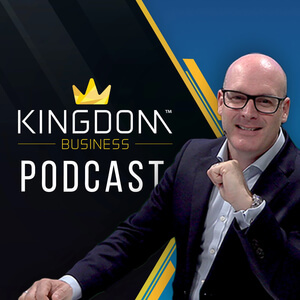 .ugb-6f8332f hr.ugb-divider__hr{margin-left:auto !important;margin-right:auto !important}@media screen and (min-width:768px){.ugb-862a598 .ugb-img{width:300px;height:auto !important}}#7 Andy Stanley Leadership Podcast
.ugb-6f8332f hr.ugb-divider__hr{margin-left:auto !important;margin-right:auto !important}@media screen and (min-width:768px){.ugb-862a598 .ugb-img{width:300px;height:auto !important}}#7 Andy Stanley Leadership PodcastWith Andy Stanley
Andy has real wisdom that is applicable to leadership in any industry. The episodes are bite-sized and full of amazing content designed to help leaders go further, faster. Andy Stanley is a pastor, communicator, author, and the founder of North Point Ministries in Alpharetta, Georgia.
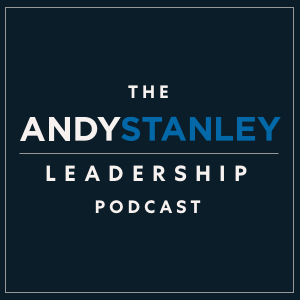 .ugb-0e955dc hr.ugb-divider__hr{margin-left:auto !important;margin-right:auto !important}@media screen and (min-width:768px){.ugb-a789ba9 .ugb-img{width:300px;height:auto !important}}#8 Faith Driven Entrepreneur
.ugb-0e955dc hr.ugb-divider__hr{margin-left:auto !important;margin-right:auto !important}@media screen and (min-width:768px){.ugb-a789ba9 .ugb-img{width:300px;height:auto !important}}#8 Faith Driven EntrepreneurFaith Driven Entrepreneur brings incredible business leaders from around the world to share how their faith affects their work. The podcast encourages, equips, empowers, and supports Christ-following entrepreneurially-minded people.
Listen to Podcast .ugb-5924928 hr.ugb-divider__hr{margin-left:auto !important;margin-right:auto !important}@media screen and (min-width:768px){.ugb-355ba1e .ugb-img{width:300px;height:auto !important}}#9 Christian Women’s Business Academy
.ugb-5924928 hr.ugb-divider__hr{margin-left:auto !important;margin-right:auto !important}@media screen and (min-width:768px){.ugb-355ba1e .ugb-img{width:300px;height:auto !important}}#9 Christian Women’s Business AcademyWith Damita McGhee
The Christian Women’s Business Academy Podcast is a show for God-fearing, high achieving women entrepreneurs. The show will challenge your view of what you have been taught business should look like and help you tap into business the way God designed it.
 .ugb-88e8dd4 hr.ugb-divider__hr{margin-left:auto !important;margin-right:auto !important}@media screen and (min-width:768px){.ugb-3d84a7d .ugb-img{width:300px;height:auto !important}}#10 The Kingdom Driven Entrepreneur Podcast
.ugb-88e8dd4 hr.ugb-divider__hr{margin-left:auto !important;margin-right:auto !important}@media screen and (min-width:768px){.ugb-3d84a7d .ugb-img{width:300px;height:auto !important}}#10 The Kingdom Driven Entrepreneur PodcastWith Shae Bynes
The Kingdom Driven Entrepreneur will inspire you to do business completely yielded and in partnership with God. Shae speaks with business owners around the world about their experiences doing business led and empowered by the Holy Spirit.
 .ugb-4c5ec14 hr.ugb-divider__hr{margin-left:auto !important;margin-right:auto !important}@media screen and (min-width:768px){.ugb-04d7fd9 .ugb-img{width:300px;height:auto !important}}#11 Entreleadership
.ugb-4c5ec14 hr.ugb-divider__hr{margin-left:auto !important;margin-right:auto !important}@media screen and (min-width:768px){.ugb-04d7fd9 .ugb-img{width:300px;height:auto !important}}#11 EntreleadershipWith Daniel Tardy
The EntreLeadership features lively discussions and tips on leadership and business by some of the top minds in the business, like Mark Cuban, Seth Godin, and Jim Collins.
 .ugb-0c638d0 hr.ugb-divider__hr{margin-left:auto !important;margin-right:auto !important}@media screen and (min-width:768px){.ugb-8aaff98 .ugb-img{width:300px;height:auto !important}}#12 Bottom Line Faith
.ugb-0c638d0 hr.ugb-divider__hr{margin-left:auto !important;margin-right:auto !important}@media screen and (min-width:768px){.ugb-8aaff98 .ugb-img{width:300px;height:auto !important}}#12 Bottom Line FaithWith Ray Hilbert
This 30 minute weekly program, produced by Truth At Work, provides a unique look at how high-capacity Christian leaders live out their faith in the marketplace, how their faith influences how they deal with the issues they face as leaders, and how they address all the demands they face.
 .ugb-481fa3b hr.ugb-divider__hr{margin-left:auto !important;margin-right:auto !important}@media screen and (min-width:768px){.ugb-010f2f2 .ugb-img{width:300px;height:auto !important}}#13 Nine to Five
.ugb-481fa3b hr.ugb-divider__hr{margin-left:auto !important;margin-right:auto !important}@media screen and (min-width:768px){.ugb-010f2f2 .ugb-img{width:300px;height:auto !important}}#13 Nine to FiveBy WorkLight
Nine to Five podcasts are conversations with Christians who are actively seeking to align their careers with God’s mission. Each show is meant to challenge and encourage you through the testimony of other believers.
 .ugb-9411e54 hr.ugb-divider__hr{margin-left:auto !important;margin-right:auto !important}@media screen and (min-width:768px){.ugb-e0f0f13 .ugb-img{width:300px;height:auto !important}}#14 iWork4Him
.ugb-9411e54 hr.ugb-divider__hr{margin-left:auto !important;margin-right:auto !important}@media screen and (min-width:768px){.ugb-e0f0f13 .ugb-img{width:300px;height:auto !important}}#14 iWork4Himwith Jim and Martha Brangenberg
This daily 30 minute broadcast, geared at business owners, will challenge the way you think about your faith and work. You’ll get practical, tactical, factual and healthy biblical challenge.
 .ugb-27b22eb hr.ugb-divider__hr{margin-left:auto !important;margin-right:auto !important}@media screen and (min-width:768px){.ugb-0c582a6 .ugb-img{width:300px;height:auto !important}}#15 Good Deads
.ugb-27b22eb hr.ugb-divider__hr{margin-left:auto !important;margin-right:auto !important}@media screen and (min-width:768px){.ugb-0c582a6 .ugb-img{width:300px;height:auto !important}}#15 Good Deadswith Dr. Renee Sunday
Dr. Sunday is internationally known as “The Platform Builder.” She helps faith-based entrepreneurs get their message out into the world through the media. Listen to her show for practical self-help and business advice.
 .ugb-e47a0f9 hr.ugb-divider__hr{margin-left:auto !important;margin-right:auto !important}@media screen and (min-width:768px){.ugb-7c644ac .ugb-img{width:300px;height:auto !important}}#16 Business, Jesus and Sweet Tea
.ugb-e47a0f9 hr.ugb-divider__hr{margin-left:auto !important;margin-right:auto !important}@media screen and (min-width:768px){.ugb-7c644ac .ugb-img{width:300px;height:auto !important}}#16 Business, Jesus and Sweet Teawith Heather Heuman
A faith-based business podcast with a social media bend — listen to case studies, best practices and real stories of christian business owners and entrepreneurs just like you and learn how they overcame struggles and use social media marketing to grow their businesses.
 .ugb-2d67a2f hr.ugb-divider__hr{margin-left:auto !important;margin-right:auto !important}@media screen and (min-width:768px){.ugb-de51265 .ugb-img{width:300px;height:auto !important}}#17 Theology of Business
.ugb-2d67a2f hr.ugb-divider__hr{margin-left:auto !important;margin-right:auto !important}@media screen and (min-width:768px){.ugb-de51265 .ugb-img{width:300px;height:auto !important}}#17 Theology of Businesswith Darren Shearer
If you want to learn more about how to do business for the glory of God, this show is for you. “ToB” helps marketplace Christians partner with God in business to help you make disciples of your co-workers, your company, and your industry.
 .ugb-e14f5ae hr.ugb-divider__hr{margin-left:auto !important;margin-right:auto !important}@media screen and (min-width:768px){.ugb-b06839f .ugb-img{width:300px;height:auto !important}}#18 Thrivepreneur
.ugb-e14f5ae hr.ugb-divider__hr{margin-left:auto !important;margin-right:auto !important}@media screen and (min-width:768px){.ugb-b06839f .ugb-img{width:300px;height:auto !important}}#18 Thrivepreneurwith Marta Samson
Marta has a show with everything you need to level up and thrive in the marketplace. Tune in weekly for solo and interview-based episodes for thriving development, marketing and business tips, motivation and success stories.
 .ugb-a71a030 hr.ugb-divider__hr{margin-left:auto !important;margin-right:auto !important}@media screen and (min-width:768px){.ugb-fdf476f .ugb-img{width:300px;height:auto !important}}#19 Building a StoryBrand
.ugb-a71a030 hr.ugb-divider__hr{margin-left:auto !important;margin-right:auto !important}@media screen and (min-width:768px){.ugb-fdf476f .ugb-img{width:300px;height:auto !important}}#19 Building a StoryBrandwith Donald Miller
Don and the StoryBrand team are the world’s leading experts in harnessing the 2,000 year-old proven power of story formulas to get people talking about your brand. Fans of the podcast love the fun and entertaining way the show brings practical advice about clarifying your message so customers will listen.
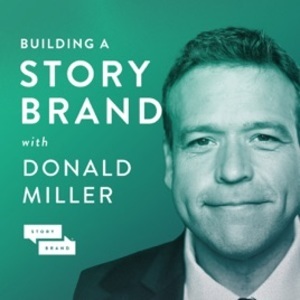 .ugb-a69474a hr.ugb-divider__hr{margin-left:auto !important;margin-right:auto !important}@media screen and (min-width:768px){.ugb-9d896f0 .ugb-img{width:300px;height:auto !important}}#20 Work Love Pray
.ugb-a69474a hr.ugb-divider__hr{margin-left:auto !important;margin-right:auto !important}@media screen and (min-width:768px){.ugb-9d896f0 .ugb-img{width:300px;height:auto !important}}#20 Work Love Praywith Diane Paddison
Diane’s show is full of real conversations about real issues women in the workplace face at work, at home, or in their church communities. The show shines a light on a much-needed aspect of the workforce in this generation.
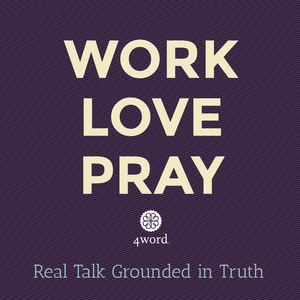 .ugb-2deb540 hr.ugb-divider__hr{margin-left:auto !important;margin-right:auto !important}@media screen and (min-width:768px){.ugb-bd06ceb .ugb-img{width:300px;height:auto !important}}#21 Convene Podcast
.ugb-2deb540 hr.ugb-divider__hr{margin-left:auto !important;margin-right:auto !important}@media screen and (min-width:768px){.ugb-bd06ceb .ugb-img{width:300px;height:auto !important}}#21 Convene Podcastwith Mark L. Vincent
Are you looking to learn from seasoned business executives? The Convene Podcast takes deep dives into a variety of Christian business leaders’ fields of expertise. Tune in to learn more on how to integrate better business practices and faith into your current work.
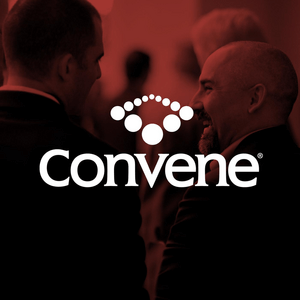 .ugb-7bed3de hr.ugb-divider__hr{margin-left:auto !important;margin-right:auto !important}@media screen and (min-width:768px){.ugb-9e0327f .ugb-img{width:900px;height:auto !important}}#22 10 Talent LeaderTalk
.ugb-7bed3de hr.ugb-divider__hr{margin-left:auto !important;margin-right:auto !important}@media screen and (min-width:768px){.ugb-9e0327f .ugb-img{width:900px;height:auto !important}}#22 10 Talent LeaderTalkwith Michael Sipe
Christian business leaders share wisdom and inspiring stories of God at work in their lives, with their families, in the companies they run, and in the lives of those they employ.
 .ugb-bea8812 hr.ugb-divider__hr{margin-left:auto !important;margin-right:auto !important}@media screen and (min-width:768px){.ugb-c35619c .ugb-img{width:300px;height:auto !important}}#23 Kingdom REI
.ugb-bea8812 hr.ugb-divider__hr{margin-left:auto !important;margin-right:auto !important}@media screen and (min-width:768px){.ugb-c35619c .ugb-img{width:300px;height:auto !important}}#23 Kingdom REIwith Ellis Hammond
We’ve had Ellis on the Eternal Entrepreneur show and he was fantastic! On his show, he brings on amazing Christian entrepreneurs to talk about godly ambition, what it takes to be successful in business, using capital as a means for influence, how to stay grounded in your faith while growing in business, and so much more!
 .ugb-0a4e56f hr.ugb-divider__hr{margin-left:auto !important;margin-right:auto !important}@media screen and (min-width:768px){.ugb-85d3e9a .ugb-img{width:224px;height:auto !important}}#24 Thriving Christian Business
.ugb-0a4e56f hr.ugb-divider__hr{margin-left:auto !important;margin-right:auto !important}@media screen and (min-width:768px){.ugb-85d3e9a .ugb-img{width:224px;height:auto !important}}#24 Thriving Christian Businesswith Pete Mitchell & Dave Negri
Self-dubbed “The most valuable podcast on the planet for Christian Business Owners who want to honor Christ with their business!” — Pete and Dave bring a culture of honor and christ-centeredness to their show.
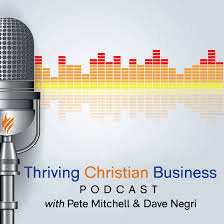 .ugb-4a8b045 hr.ugb-divider__hr{margin-left:auto !important;margin-right:auto !important}@media screen and (min-width:768px){.ugb-cff01bd .ugb-img{width:300px;height:auto !important}}#25 Christian CEO
.ugb-4a8b045 hr.ugb-divider__hr{margin-left:auto !important;margin-right:auto !important}@media screen and (min-width:768px){.ugb-cff01bd .ugb-img{width:300px;height:auto !important}}#25 Christian CEOwith Kelly Baader
Kelly helps Christian Entrepreneurs and High Achievers create profitable businesses by establishing their preeminent positioning in the marketplace, so they can finally become the influential change-makers they are called to be!
 .ugb-688f8fe hr.ugb-divider__hr{margin-left:auto !important;margin-right:auto !important}@media screen and (min-width:768px){.ugb-3a2718a .ugb-img{width:300px;height:auto !important}}#26 Making it Work
.ugb-688f8fe hr.ugb-divider__hr{margin-left:auto !important;margin-right:auto !important}@media screen and (min-width:768px){.ugb-3a2718a .ugb-img{width:300px;height:auto !important}}#26 Making it Workwith Leah Archibald, Mark Roberts
Through conversation, scripture and stories, the Making it Work podcast invites God into work’s biggest challenges, so that you can live out your purpose in the workplace.
 .ugb-33f861b hr.ugb-divider__hr{margin-left:auto !important;margin-right:auto !important}@media screen and (min-width:768px){.ugb-b8461cb .ugb-img{width:300px;height:auto !important}}#27 The Theology of Work
.ugb-33f861b hr.ugb-divider__hr{margin-left:auto !important;margin-right:auto !important}@media screen and (min-width:768px){.ugb-b8461cb .ugb-img{width:300px;height:auto !important}}#27 The Theology of Workwith Dr. Clint Le Bruyns
The original ToW (Theology of Work) podcast! They don’t update the show as often here, but the topics are still solid! True to their name, they bring a theological perspective to the work life.
 .ugb-6447f50 hr.ugb-divider__hr{margin-left:auto !important;margin-right:auto !important}@media screen and (min-width:768px){.ugb-a5cbdb1 .ugb-img{width:268px;height:auto !important}}#28 The Ray Edwards Show
.ugb-6447f50 hr.ugb-divider__hr{margin-left:auto !important;margin-right:auto !important}@media screen and (min-width:768px){.ugb-a5cbdb1 .ugb-img{width:268px;height:auto !important}}#28 The Ray Edwards Showwith Ray Edwards
Edwards’ show is one of the top-rated business podcasts on iTunes created for small business owners, and those who want to start a business. The podcast episodes are published Wednesday morning each week. Check it out!
 .ugb-c0090ae hr.ugb-divider__hr{margin-left:auto !important;margin-right:auto !important}@media screen and (min-width:768px){.ugb-d03d20f .ugb-img{width:300px;height:auto !important}}#29 The Christian Woman Business
.ugb-c0090ae hr.ugb-divider__hr{margin-left:auto !important;margin-right:auto !important}@media screen and (min-width:768px){.ugb-d03d20f .ugb-img{width:300px;height:auto !important}}#29 The Christian Woman Businesswith Esther Littlefield
As a successful christian business women, you want to grow your business, but you struggle with feeling like you have to do #allthethings, and you’re not sure where to focus. The show will help you focus and make an impact without compromising your faith.
 .ugb-41bca59 hr.ugb-divider__hr{margin-left:auto !important;margin-right:auto !important}@media screen and (min-width:768px){.ugb-f274ef1 .ugb-img{width:300px;height:auto !important}}#30 Faith Collides
.ugb-41bca59 hr.ugb-divider__hr{margin-left:auto !important;margin-right:auto !important}@media screen and (min-width:768px){.ugb-f274ef1 .ugb-img{width:300px;height:auto !important}}#30 Faith Collidesfrom Lux Mundi
This show dives into the career stories of leading industry leaders, and how faith has played into their life at work. Each episode has a carefully crafted storytelling format, leaving listeners with industry insight and career aspirations for the work week ahead.
 .ugb-96f967b hr.ugb-divider__hr{margin-left:auto !important;margin-right:auto !important}@media screen and (min-width:768px){.ugb-6978778 .ugb-img{width:300px;height:auto !important}}#31 Carey Nieuwhof Leadership Podcast
.ugb-96f967b hr.ugb-divider__hr{margin-left:auto !important;margin-right:auto !important}@media screen and (min-width:768px){.ugb-6978778 .ugb-img{width:300px;height:auto !important}}#31 Carey Nieuwhof Leadership Podcastwith Carey Nieuwhof
Carey’s show is all about leadership, change and personal growth. The goal? To help you lead like never before—in your business. The podcast features a mix of well-known and everyday leaders whose insights bring tremendous value to your development as a leader.
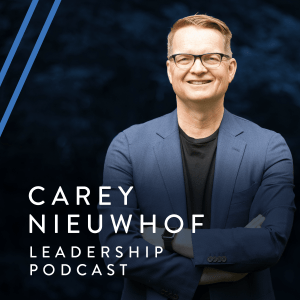 .ugb-cb874df hr.ugb-divider__hr{margin-left:auto !important;margin-right:auto !important}@media screen and (min-width:768px){.ugb-62d619e .ugb-img{width:300px;height:auto !important}}#32 The Redemptive Edge
.ugb-cb874df hr.ugb-divider__hr{margin-left:auto !important;margin-right:auto !important}@media screen and (min-width:768px){.ugb-62d619e .ugb-img{width:300px;height:auto !important}}#32 The Redemptive Edgewith Andy Crouch
Andy talks with founders about the way their backgrounds have uniquely prepared them to work on the problems and opportunities they’ve chosen; and about how their Christian imagination and practices have shaped their work.
 .ugb-0e3a2d9 hr.ugb-divider__hr{margin-left:auto !important;margin-right:auto !important}@media screen and (min-width:768px){.ugb-3fd1a17 .ugb-img{width:300px;height:auto !important}}#33 Kingdom Success
.ugb-0e3a2d9 hr.ugb-divider__hr{margin-left:auto !important;margin-right:auto !important}@media screen and (min-width:768px){.ugb-3fd1a17 .ugb-img{width:300px;height:auto !important}}#33 Kingdom Successwith Tyler H. McCart
With over 100,000+ downloads, the Kingdom Success podcast will help you maximize your Kingdom potential in life and at work. If you are a business owner and you desire to be successful in life and at work God’s Way, then please tune in each week as you discover HOW to be a success God’s Way.
 .ugb-41ae212 hr.ugb-divider__hr{margin-left:auto !important;margin-right:auto !important}@media screen and (min-width:768px){.ugb-9607430 .ugb-img{width:300px;height:auto !important}}#34 God Centered Success
.ugb-41ae212 hr.ugb-divider__hr{margin-left:auto !important;margin-right:auto !important}@media screen and (min-width:768px){.ugb-9607430 .ugb-img{width:300px;height:auto !important}}#34 God Centered Successwith Mia Rene
Mia designed a show for leaders in the business world who want to fulfill God’s calling on their life. Tune in each week for topics that are relevant to your life as a Christian entrepreneur and will fuel your faith with God’s word and truth for the week ahead.
 .ugb-84af923 hr.ugb-divider__hr{margin-left:auto !important;margin-right:auto !important}@media screen and (min-width:768px){.ugb-b447ab6 .ugb-img{width:300px;height:auto !important}}#35 The Mompreneur Mastermind
.ugb-84af923 hr.ugb-divider__hr{margin-left:auto !important;margin-right:auto !important}@media screen and (min-width:768px){.ugb-b447ab6 .ugb-img{width:300px;height:auto !important}}#35 The Mompreneur Mastermindwith Stefanie Gass
Stefanie helps moms uncover their God-led callings, find clarity, launch successful businesses. She is obsessed with the idea that moms on a mission can create passive income businesses that light them up while creating more time and space.
 .ugb-2387138 hr.ugb-divider__hr{margin-left:auto !important;margin-right:auto !important}@media screen and (min-width:768px){.ugb-2a3d675 .ugb-img{width:300px;height:auto !important}}#36 The Thriving Christian Artist
.ugb-2387138 hr.ugb-divider__hr{margin-left:auto !important;margin-right:auto !important}@media screen and (min-width:768px){.ugb-2a3d675 .ugb-img{width:300px;height:auto !important}}#36 The Thriving Christian Artistwith Matt Tommey
Check out the official podcast of internationally recognized artist, speaker, author and mentor Matt Tommey. The Thriving Christian Artist Podcast is for artists who want to bust through roadblocks that have held them back and live as an artist in God’s Kingdom.
 .ugb-c5e7a91 hr.ugb-divider__hr{margin-left:auto !important;margin-right:auto !important}@media screen and (min-width:768px){.ugb-8d06b6c .ugb-img{width:300px;height:auto !important}}#37 BecomingCEO
.ugb-c5e7a91 hr.ugb-divider__hr{margin-left:auto !important;margin-right:auto !important}@media screen and (min-width:768px){.ugb-8d06b6c .ugb-img{width:300px;height:auto !important}}#37 BecomingCEOwith Kay Hillman
Kay has put together a great show for female entrepreneurs and business owners to help improve their marketing and social media strategy. Every week she shares tips and tricks about social media marketing, mindset, and sales strategy. You’ll learn how to start, grow, and scale a service based or coaching business — God’s way.
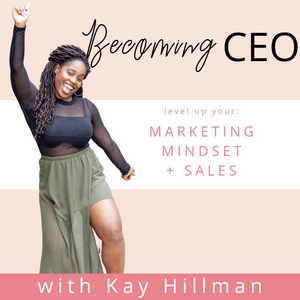 .ugb-8f361d2 hr.ugb-divider__hr{margin-left:auto !important;margin-right:auto !important}@media screen and (min-width:768px){.ugb-a60f897 .ugb-img{width:300px;height:auto !important}}#38 Christian Business Insights
.ugb-8f361d2 hr.ugb-divider__hr{margin-left:auto !important;margin-right:auto !important}@media screen and (min-width:768px){.ugb-a60f897 .ugb-img{width:300px;height:auto !important}}#38 Christian Business Insightswith Dave Kahle
CBI serves ‘out-of-the-box’ views on how to operate a Christian Businesses — designed to help you build a powerful business, expand your impact, and grow closer to God in the process.
 .ugb-c7f2c00 hr.ugb-divider__hr{margin-left:auto !important;margin-right:auto !important}@media screen and (min-width:768px){.ugb-bdc13c6 .ugb-img{width:300px;height:auto !important}}#39 Faith Driven Investor
.ugb-c7f2c00 hr.ugb-divider__hr{margin-left:auto !important;margin-right:auto !important}@media screen and (min-width:768px){.ugb-bdc13c6 .ugb-img{width:300px;height:auto !important}}#39 Faith Driven Investorfrom Faith Driven Entrepreneur Faith Driven Investor is a growing movement of business leaders, fund managers, investors, and pastors that are driven by their faith and who believe that God owns it all and that he cares deeply about how we steward our investments. This is a second podcast from the great folks at FDE!
Listen to Podcast .ugb-d580932 hr.ugb-divider__hr{margin-left:auto !important;margin-right:auto !important}@media screen and (min-width:768px){.ugb-8ec045a .ugb-img{width:300px;height:auto !important}}#40 Your Purpose is Calling
.ugb-d580932 hr.ugb-divider__hr{margin-left:auto !important;margin-right:auto !important}@media screen and (min-width:768px){.ugb-8ec045a .ugb-img{width:300px;height:auto !important}}#40 Your Purpose is Callingwith Dawn Sadler
Dawn has a wonderful podcast featuring conversations with Christians that are finding purpose, redefining work, and changing their world. She has over 20 years of corporate experience, 10 years as the owner of an award-winning marketing firm, and 5 years in Christian business ministry. Check out her show!
 .ugb-a2149b8 hr.ugb-divider__hr{margin-left:auto !important;margin-right:auto !important}@media screen and (min-width:768px){.ugb-c203501 .ugb-img{width:300px;height:auto !important}}#41 The Entrepreneur’s Summit
.ugb-a2149b8 hr.ugb-divider__hr{margin-left:auto !important;margin-right:auto !important}@media screen and (min-width:768px){.ugb-c203501 .ugb-img{width:300px;height:auto !important}}#41 The Entrepreneur’s Summitwith Roman Randall
The Entrepreneur’s Summit Podcast is for entrepreneurs and creatives who want to be successful in life, in business, and for the Lord Jesus Christ. The show includes interviews, Q&A’s, and “content jacks” — inspiring content to motivate your day.
 .ugb-1331918 hr.ugb-divider__hr{margin-left:auto !important;margin-right:auto !important}@media screen and (min-width:768px){.ugb-ffa6752 .ugb-img{width:300px;height:auto !important}}#42 Success Habits of Christian Entrepreneurs
.ugb-1331918 hr.ugb-divider__hr{margin-left:auto !important;margin-right:auto !important}@media screen and (min-width:768px){.ugb-ffa6752 .ugb-img{width:300px;height:auto !important}}#42 Success Habits of Christian Entrepreneurswith Mike Holmes
Mike’s podcast focuses on this single idea: an entrepreneur is someone who “swims out” to the unknown to “grab hold of” unseen opportunities. A Christian Entrepreneur is one who does this to the glory of God!
 .ugb-5d75e0f hr.ugb-divider__hr{margin-left:auto !important;margin-right:auto !important}@media screen and (min-width:768px){.ugb-ef40fd0 .ugb-img{width:268px;height:auto !important}}#43 Exploring Series
.ugb-5d75e0f hr.ugb-divider__hr{margin-left:auto !important;margin-right:auto !important}@media screen and (min-width:768px){.ugb-ef40fd0 .ugb-img{width:268px;height:auto !important}}#43 Exploring Serieswith Shawn Bolz, Bob Hasson
On Exploring the Prophetic, Exploring the Industry, and Exploring the Marketplace co-hosted with Bob Hasson, Shawn interviews some of his close friends, entrepreneurs, and leaders from all different industries on how God’s voice has caused great change in their lives and the world around them.
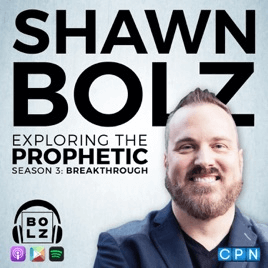 .ugb-3539e28 hr.ugb-divider__hr{margin-left:auto !important;margin-right:auto !important}@media screen and (min-width:768px){.ugb-c868cd1 .ugb-img{width:300px;height:auto !important}}#44 Business Done Right
.ugb-3539e28 hr.ugb-divider__hr{margin-left:auto !important;margin-right:auto !important}@media screen and (min-width:768px){.ugb-c868cd1 .ugb-img{width:300px;height:auto !important}}#44 Business Done Rightwith Seth Buechley
Do you want to grow a valuable business and avoid wasting years learning every lesson the hard way? Then discover the strategies and insights of winning leaders and organizations is critical to your success. Seth brings you these strategies in his premiere show.
 .ugb-b7ce9a2 hr.ugb-divider__hr{margin-left:auto !important;margin-right:auto !important}@media screen and (min-width:768px){.ugb-477baae .ugb-img{width:300px;height:auto !important}}#45 Christian Entrepreneur Podcast
.ugb-b7ce9a2 hr.ugb-divider__hr{margin-left:auto !important;margin-right:auto !important}@media screen and (min-width:768px){.ugb-477baae .ugb-img{width:300px;height:auto !important}}#45 Christian Entrepreneur Podcastwith Annemarie Crossy
The show features daily conversations with Christian entrepreneurs to inspire and empower you to walk strongly in your faith, while you build a thriving business that honors God.
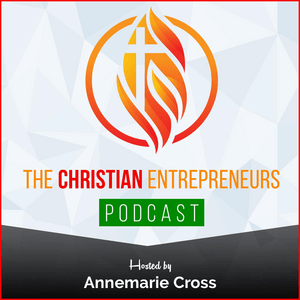 .ugb-34f6fc3 hr.ugb-divider__hr{margin-left:auto !important;margin-right:auto !important}@media screen and (min-width:768px){.ugb-9fc3d91 .ugb-img{width:300px;height:auto !important}}#46 Faith-Full Business
.ugb-34f6fc3 hr.ugb-divider__hr{margin-left:auto !important;margin-right:auto !important}@media screen and (min-width:768px){.ugb-9fc3d91 .ugb-img{width:300px;height:auto !important}}#46 Faith-Full Businesswith Steve Schramm
Steve has cracked the code on how to be a high achiever while honoring and serving God, his guest’s stories will inspire you to do the same. The show desires to honor God above all, while recognizing that we can be high achievers, motivated leaders, and intensely passionate Bible-believers.
 .ugb-21a9996 hr.ugb-divider__hr{margin-left:auto !important;margin-right:auto !important}@media screen and (min-width:768px){.ugb-e32e8c3 .ugb-img{width:300px;height:auto !important}}#47 The Faith and Work Podcast
.ugb-21a9996 hr.ugb-divider__hr{margin-left:auto !important;margin-right:auto !important}@media screen and (min-width:768px){.ugb-e32e8c3 .ugb-img{width:300px;height:auto !important}}#47 The Faith and Work Podcastfrom DIFW
The Faith & Work Podcast explores our everyday work in God’s world, and is produced and hosted by Denver Institute for Faith and Work.
 .ugb-3cea6ad hr.ugb-divider__hr{margin-left:auto !important;margin-right:auto !important}@media screen and (min-width:768px){.ugb-505a80c .ugb-img{width:300px;height:auto !important}}#48 The Portfolio Life
.ugb-3cea6ad hr.ugb-divider__hr{margin-left:auto !important;margin-right:auto !important}@media screen and (min-width:768px){.ugb-505a80c .ugb-img{width:300px;height:auto !important}}#48 The Portfolio Lifewith Jeff Goings
Jeff shares his thoughts and ideas to help you to pursue work that matters, make a difference, and discover your true voice. Give the show a listen!
 .ugb-627b4bc hr.ugb-divider__hr{margin-left:auto !important;margin-right:auto !important}@media screen and (min-width:768px){.ugb-75dd935 .ugb-img{width:300px;height:auto !important}}#49 Lead to Win
.ugb-627b4bc hr.ugb-divider__hr{margin-left:auto !important;margin-right:auto !important}@media screen and (min-width:768px){.ugb-75dd935 .ugb-img{width:300px;height:auto !important}}#49 Lead to WinWith Michael Hyatt, Megan Hyatt Miller
From personal productivity to personal development, self-leadership to team leadership, and intentionality to influence, Michael’s show gives great insights and tools to win at work and succeed at life.
 .ugb-7d2efbc hr.ugb-divider__hr{margin-left:auto !important;margin-right:auto !important}@media screen and (min-width:768px){.ugb-9d501d2 .ugb-img{width:300px;height:auto !important}}#50 Love and Respect
.ugb-7d2efbc hr.ugb-divider__hr{margin-left:auto !important;margin-right:auto !important}@media screen and (min-width:768px){.ugb-9d501d2 .ugb-img{width:300px;height:auto !important}}#50 Love and RespectWith Emerson Eggerichs, PhD and Jonathan Eggerichs, PsyD
Last, but not least! This podcast highlights discussions between pastor and clinical psychologist, father and son, that is certain to serve and encourage males and females alike. No one and no relationship, whether inside or outside the home, is off-limits. In a world where emotional intelligence matters more than ever, this show will serve your business well!
 Best Christian Podcasts Summary
Best Christian Podcasts SummaryAs a Christian Entrepreneur in training, we hope you’ve found this list of podcasts helpful for building your business in the new year. 2021 is full of potential, and with the right knowledge and spiritual perspective, I have no doubt you will succeed at what you do. In closing, consider a favorite verse of mine — Proverbs 16:3 “Commit to the LORD whatever you do, and he will establish your plans.” As you build your business, aim to establish it on the relationship you have with God, and dedicate your work to him. No amount of knowledge replaces the foundation you have in Christ.
The post Top 50 Podcasts for Christian Business in 2022 (Updated) appeared first on Pierce Brantley.
February 15, 2021
How to Be Assertive When You’re a Christian
Can Kingdom Entrepreneurs be assertive without being overly aggressive or defaulting to anger? It’s a paradox. Christian business leaders need to be authoritative and assert themselves in all kinds of situations, but doing so can feel counter-intuitive. Don’t the meek inherit the earth? In this episode, Pierce Brantley unpacks a spiritual discipline and technique he uses to exercise assertiveness without engaging anger or fear. You’ll learn how to positively assert yourself while still demonstrating Christ-likeness. The result is a stronger testimony and a reputation that will stay intact.
.ugb-8f31626 hr.ugb-divider__hr{margin-left:auto !important;margin-right:auto !important}Episode TranscriptionToday we are going to talk about how to exercise authority, how to be assertive, how to be present in a situation. Sometimes we have to take action as a Christian business owner as an entrepreneur. So I have a question.
When was the last time you really had to assert yourself?
Maybe you felt a little anger or driven by urgency. Most importantly though, you felt like you were justified to take action in a situation. I don’t know what it was. Maybe contractor dropped the ball or you missed an important deadline or someone missed one for you or someone just didn’t do what they needed to do, but you decided to step in because you had to fix the situation.
Well, this sounds like you, if you’re a go getter, a high D on the DISC, maybe you’re the anger triad with the Enneagram or, more importantly, you just work with people. If you’re a fixer, if you’d like to get things done, you like to take names. We’re going to be talking about something really important today for you because when you’re a leader, there are times when you have to assert yourself when you’re a leader there’s times and you have to be authoritative.
When you’re a leader, you need to fix a situation every once in a while.
And all of these things, especially. If you’re a Christian or you are Christian Business Owner, they can kind of cause an internal angst just because we know on some level that we can’t just fly off the handle, even though we might feel like it, we know.
That just barreling through something, even though it might get us to the other side of whatever circumstance we’re in, might kind of leave damage in the lives of people and in the lives of our company. But we still have to do something and we don’t know what to always do with that in contrast with how we see Christ, you know, live out his life.
And so oftentimes I think we feel stuck.
And so what we do instead is we say, well, you know, let’s just be nice. Let’s just have some grace. Let’s just forgive. Let’s just step back and hope it doesn’t happen again next time, because we’re in conflict with how we should. Act when the situation requires it of us because of our faith.
And so that’s, what I want to talk about today is how would Jesus, how is someone who is truly trying to abide in what Christ did on the earth and how he expects us to live? What would that look like if you needed to be. Assertive, if you needed to be authoritative in a situation that called for it, because there’s circumstances all day long, if you’re an owner operator or if you’re just, you know, somewhere high up in the management level where you’re going to have to take something by the rains.
But you want to do it in a way that’s Christ honoring. So that’s what we’re going to talk about many years ago. I was in a board meeting with a technology company and they thought that they were going to be a national asset, meaning that they had the hunch. They foresaw that the government might take over the technology because it was so important to socio-economic development stabilization of, of what it could be happening in the energy sector.
Big stuff. It was cool. What was interesting about why I was there was because I was there with the leader of the company that I was working for. We were looking at putting together a kind of a tertiary type marketing branding strategy for them along with some other business development stuff.
And we’ve been working with them for some time, but this day was particularly different and it was different because one of the business partners I was with that represented our company, I put together a new proposal for this company and what they had done was a little bit nefarious, actually was a lot Nefarious a lot nefarious.
Is that a thing? What they decided to do was in the proposal, they wrote in very fine print, buried in the legal, ease that about, I want to say it was 20% of 20 to 25% of the revenue from this company. Any profit realized had to be handed over to us, to the marketing company. Now they had no idea this language was in there.
None hadn’t been talked about before and when the time came to sign paperwork, what was pitched? Was the typical things you might see in a, in a really large scale brand strategy. What was in the proposal looked completely different and to make matters worse. What had happened, if you can just imagine this big boardroom it’s time to sign the paperwork.
And this person folded over the paper over the important parts of the proposal, and just said, sign here on the bottom line. They actually thought this was going to work mind you. I don’t know if they thought they could just Rue the person into signing or what. And most importantly, there was another document that this document referenced that basically said anything that’s in the other document is basically part of the proposal.
And they didn’t show him or they didn’t show this company that, that document extremely, extremely deceptive. And for a moment, it looked like he was going to get away with it, but he didn’t within a minute, a minute. The person who is signing realized that something was up and he started asking, well, you know, why can’t I read this when I just read this?
And then. As you can imagine, he didn’t want to show him the document. So he actually put it in a corner of the room, which of course escalated the situation. You can imagine very high profile very kind of type a people yelling at each other in a boardroom. It was like a great eighties movie where you don’t know who’s going to win, but the loudest voice is certainly going to try.
I removed myself from the situation realizing that the sky would not probably be a good person to work with long-term and I didn’t know what to do. Part of me thought I needed to get legal counsel. Another part of me thought, you know, well, I definitely need to disclose at least the situation, other people at the very least, I’d probably just need to quit and get out of here.
I knew I had to do something. And I knew it. Wasn’t just going to be a normal type of client situation, especially now that trust has been broken at such a big level. And so I removed myself from the situation the next morning. I’m still pretty distraught early morning, and I started to go and spend some extra time with the Lord.
And while I’m praying about whether to quit you know, whether to go find a lawyer to kind of remove myself from the situation, praying about what to do. I hear very, very clearly in my spirit, as I’m praying, I hear if he asks you how he can change, you need to stay came out of thin air came out of the blue and I’ll be honest, that was not.
Really what I had in mind at this point, I was to be honest, in my worst moments, I was afraid because I was like, if they could try and do this with one client, imagine what they would do, you know, to me. And so there was a strong lack of trust there, but really it probably just boiled down to someone wanting to capitalize on what could have been a big opportunity and who hasn’t wanted to do that.
And so no sooner. Do I have this thought from the Lord, then this person calls me and it’s early in the morning, mind you it’s very early in the morning. And what do you expect? They want to talk about what happened the day before, because we hadn’t talked since then. Because the situation had just escalated and I had removed myself and, you know, they, they had a million ways of explaining why they did what they did.
But I basically told them, Hey, listen, I’m looking for other opportunities. I basically put a fleece out there and you know, they were shocked and they said, well, Whoa, you know, what can I do to change in order to rebuild your trust? And I thought this was odd because really I reported to this person and they didn’t actually need to make this invitation.
But I remember what the Lord had told me just about five minutes prior. And I said, okay, well, listen, If we are going to continue to work together. A couple of things are gonna need to change one. I’m going to need disclosure on anything that you’re working on in terms of like the proposal and the contract side of it.
The other is I’m going to need you to actually practice active listening. So instead of you reframing. Like legal language and opportunity in a way that benefits you. I need to actually hear you repeat what people are saying as a way of basically self confessing that you’re listening to them. And that way I can know that you’re being present to the needs of others.
And honestly, I thought that was kind of a high bar to ask given what had just happened the day before, but their posture towards it was completely open. Even beyond that, they begin to show the signs of change. And so moving forward in different meetings, different clients scenarios, it did the same to start practicing active listening.
They would actually repeat out loud what the person was saying. As a way of facilitating, you know, agreement of showing that they were on the same page, they started being more transparent with how they did proposals and, and short of terms, they repented they’d changed the way they were acting, at least as it related to this type of type of stuff.
So why do I tell you this story? The reason is because it was a scenario that absolutely required something to be done. Something had to change now, whether that was boundary or refactoring of the relationship, or just calling someone to task something to had to happen. My question though, was what would it look like for a Christian to assert themselves in a situation in such a way that it still glorifies the Lord now?
What was so interesting? Is that the Lord had asked me to give them an invitation. Basically I would have never used that language at the time, but a call to repentance, let them be willing to change, let them be restored. And so that’s what I did. And that’s what happened. And what’s cool about this story is it actually reminds me of Luke chapter 22, Luke chapter 22.
We’re not going to go through and read it all, but it is the story of Jesus getting arrested. If you’re familiar with the story, Jesus is in the garden of get the Semini and there’s a minor-league mob about to take him in some of the high priests are there. Judases there, but some of the disciples are there too.
And at the height of the escalation the Bible says someone, I love how it says someone in Luke because the someone was Peter and they’re just like, not calling them out, but everybody knows it’s Peter. So Peter. It takes a sword and basically says, Hey, you know what? It is time to assert the God-given authority that has been given to me, the kingdom of God is about to come.
And I am going to start this battle here and now it takes a sword swings at one of the soldiers. And you kind of get this picture of the soldier kind of dodging kind of juking Peter’s sword. And putting his head off to the side and Peter swings in the sword, clean cuts off the dudes here, slices it right off and it’s on the ground.
And you can imagine that Peter’s intent was actually to be a little bit more final. And you can imagine him kind of getting geared up to swing again. You actually hear earlier, earlier in the story, Peter asks about read two swords, which is, I think kind of funny. He was going Ninja style. So anyway, Jesus, however is not having it.
He’s irate. He says that’s enough. Very firmly, basically cut it out. And what does he do? He reaches down. It picks up the soldier’s ear. This one that’s about to arrest him. He walks up to the soldier and he puts the ear back on the soldier and he heals him. And then he lets the soldier continue on his way.
It’s extremely powerful because we see two different pictures of authority working themselves out. We see the worlds. Perspective on authority, which is basically go for the juggler, win, win the argument, win over the situation, beat them, and then you see another way you see Christ’s way, which is in my presence.
I am going to act. As a vehicle of restoration in my presence, I will not stand for things to be broken in. My presence. Authority looks like two things, resurrection and restoration authority in the kingdom looks like resurrection and restoration. Authority in the kingdom, refuses for brokenness to be a banner over a person’s life in the presence of God, severed things will be restored.
And the presence of God dead things come to life. The world’s sense of authority is always about flexing power about being right, but heaven’s authority says that which is broken will be healed. So, how do you assert yourself as a Christian business leader? What does this mean for the day in day out parts of our lives?
So next time you’re in a high stakes situation. I want you to consider this a three part process to being authoritative, to acting assertively in a situation that requires it. The first thing is to just separate yourself. Put down your sword, so to speak and submit to the Lord’s authority, get in the secret place, get his perspective because if a situation or person is broken, he has a perspective about it.
And it’s really going to be beneficial to bring him into it because that’s what kingdom looks like. The second is, well, I just call root cause analysis. A lot of you will know what that means. But effectively, it just means, you know, what is the real issue here? Because when we’re angry, Or when we have a personality that’s maybe leans towards just wanting to kind of fix the situation.
We can kind of act on our own personality, our own persona, our own agency to try and just get something done in order to kind of band-aid something to stitch something up, and that can oftentimes gloss over what really happened. You know, also. All it does is kind of it’s, it can lead to a type of vanity because really you are simply going to, you’re going to finish the situation and you’re gonna feel good about yourself.
But you may have not actually looked at what the root issue is. So you’ll feel good about fixing the problem. But there might be a failure to really understand what the real problem is. So know what you’re actually fighting through. I’m trying to say yes. And then lastly, but certainly not least you need to have in your mind.
How am I going to restore people? The kingdom of God is primarily about people not process. So you act authoritatively in needs to actually elevate others. So I love Ephesians four eight, and it just talks about how basically when Christ came, he came with gifts, he came with gifts. So not only is he like Coming and walking in salvation, not only is he Lord of our lives, the Lord of the dance he’s coming in and he’s saying, Hey bud, I got gifts.
And what I love about that, you know, there’s tons of talks about Jesus being a servant leader. But what I love about that is the restorative process is actually. A gift. So not only is a person saved, but they’re endowed. How true is that of you and a VI? So when we need to actually heal a situation, bring restoration in a person’s life and the situations, life, a team whatever that looks like.
Leave it better than you found it. Let there be so much grace in your action that it’s causing an overflow in that person’s life that they are going to be marked by the reality of heaven because of the way you took action. So that’s this week’s lunch break. Hope you enjoyed it. I would love to know if there’s a situation where you got to flex the kingdom’s authority and you got some testimony out of it, share it with Joe and myself.
And we’d love to hear from you. Thanks so much. Thank you so much for listening today. If you enjoyed this show, please leave us a five-star review and share this with a friend. It would help us out tremendously. Also, if you’d like to stay in touch and get a free copy of the first chapter of Pierce’s new book, calling how to partner with God and any business with any boss at any place in life.
The post How to Be Assertive When You’re a Christian appeared first on Pierce Brantley.
January 24, 2021
Ellis Hammond on How to Build Community
What does it take to build community, and what are the actions you should take to create a successful team or group within your Kingdom Business? In this episode, Ellis Hammond, Owner of Kingdom REI, the #1 Mastermind Community for Entrepreneurs and Investors, talks about his incredible journey to build a Christian business which thrives by bringing people together through marketplace ministry.
.ugb-674d4e0 hr.ugb-divider__hr{margin-left:auto !important;margin-right:auto !important}Episode TranscriptionHey, this is Ellis Hammond with Kingdom REI and the Kingdom REI podcast. And if you want to create an impactful kingdom business, you should be listening to the eternal entrepreneur podcast. My good friends, Joe Newton and Pierce Brantley.
The Eternal Entrepreneur gives you the stories and strategies to gain freedom. As a Christian business leader, you’ll hear from real entrepreneurs who have learned how to partner with God. From making millions to filing bankruptcy. These are honest stories to help you hear God’s voice and build a lasting legacy through business.
Well, hello and welcome back. And thank you for joining us for the Eternal Entrepreneur podcast. I’m Pierce Brantley, along with my co-host Joe Newton, and we could not be more excited to share with you our conversation today with Ellis Hammond. Ellis is the founder of kingdom REI. The number one Mastermind community for Christian real estate entrepreneurs.
He also manages his own network of investors who see passive opportunities and apartment complexes across the U S but his own entrepreneurial journey began when he was still a full-time college pastor. Before we jump into the interview today, want to ask if you’d help us out by leaving us a five star review and sharing the podcast with a friend.
And also if you’d like to stay in touch and get a free copy of the first chapter of my book, calling how to partner with God and any business with any boss at any place in life. And click on the link in the show notes to sign up for our weekly email or visit eternal entrepreneur.com now onto the interview.
Thank you so much. It is awesome to have you here. My bio is way more sexy when you read it. So thanks for that. Appreciate it. We’ll get that recorded and sent over to you so you can, [00:02:00] well, Ellis. I want to jump in because we only have you for a little while. So we heard your journey really started way before you got into real estate.
Before you had the podcast, you were a campus pastor. And everyone knows that a campus pastor is rich and invest in multifamily apartments. And we want to know how did you start living out that entrepreneurial life? And yeah. Yeah. Everyone knows you’re joking because everyone knows a lot of times pastors are broke.
Most college pastors can barely buy groceries. Right? Yeah, we did. So, yeah. Yeah, we were fine. Not making a lot of money. We didn’t get into ministry to make any money by any means. We love what we did, man. We were building communities of Bay here in San Diego on college campuses. And we did that for about six years, but I don’t know, probably like four years into our ministry.
We just. I mean in a lot of ways, you’re out of money in a sense of like, Oh, our [00:03:00] team was beginning to really grow. We were building a team here in San Diego and, um, we just wanted to figure out better ways to create capital and that never thought we would be come a full-time entrepreneur. I always thought I would do full-time vocational ministry, but really wanted better vehicles to build wealth in.
And, uh, but I had no idea how to go do that. And, um, and so we just got hungry, man. Like I just started asking questions and the first thing I ever heard was a radio ad that said, Hey, if you want to learn how to build wealth through real estate, come to this two hour seminar. And I mean, it hit me at the right time.
And I was like, well, I got nothing to lose. I don’t know anything else. And so I went to this two hour seminars the first time I ever saw. Kind of normal Joe’s right. Like those guys who didn’t come from big Wells don’t have a huge real estate background, but they were telling their stories about how they started building wealth through real estate.
And that changed my life. And it was the first time I say that it’s like I was taught the real estate was the end game for the wealthy. And it was the first time I think I [00:04:00] realized that real estate was actually the starting point. For all of the willing to go and build wealth. And so it changed my life.
And so four months after that, we ended up buying our first duplex and we can get into that story if you’d like, but that was kind of the beginning. Yeah. When you say we, do you feel like this was a, a change of mind that just you had, or was it you and your wife, both that kind of at the same time, we’re, we’re having that change of perspective because I know with me and my wife, we don’t always go at the same level.
Yeah, that’s a great question. Now my wife probably thought I was crazy and definitely still thinks a lot of what we’re doing. And we’re now settling. We’re actually in the process about two weeks from selling that for suplex. So no, like no to all the earliest husbands out there, like if you’re about to make some massive transition, eight months into your marriage probably don’t do it like 10 o’clock at night, late in bed.
Right. So if anybody’s listening, let me say view. Right? And so not, [00:05:00] I have so many ideas. I’m such a visionary that when I started telling my wife this she’s like, okay, But I gave me, I was obsessed of like going to change our financial position and we’re going to help people along the way. And I just kept talking about, I kept learning and kept trying to educate her along the way.
So no, it was slowly, slowly and steadily. And I think part of it has been through this process of. Us buying duplex. And then we moved into this duplex and then we moved out of the duplex and then we bought our first apartment complex, her like seeing it it’s kind of really brought us in line or like now you’re selling her home.
We’re going to actually go rent again. And she’s on board. Cause she gets, she gets the process of like, we’re we say this all the time, that will, we’re paying the price now so that we can pay whatever price we want to later. And part of that is making decisions, like selling your house and moving into a rental.
And that’s part of our journey. Right? I think that’s so good. And. And learning to communicate with your wife on the entrepreneurial journey, because I [00:06:00] know a lot of people listening are probably similar to you and I, that we get something in our head. We see it. On the Hilltop and we just want to go after it.
But if we forget to properly communicate to our wives, the things that we’ve learned when they weren’t standing there right there with us, that can cause a lot of trouble. And I think that’s really good that you were able to, to walk her in and go at her pace as well. Yeah. I mean, I don’t know if I ever did that perfectly.
I don’t know if anybody. But no, I mean, you’re totally right, man. And, um, I’m so grateful to have a supportive wife and, you know, even when we lost our business kingdom, REI, there was a lot of, kind of pushback we got there, but the one steady relationship was my sweet wife. And so, yeah, I mean it is having a, being able to create a safe Haven in your home.
And in your marriage, especially as Rocky as entrepreneurship can be is, is really key. So, yeah, absolutely. Yeah. Will you go into that story as far as how you got [00:07:00] that first duplex and what that looked like? Yeah, for sure, man. So. We just started learning this study, or I started learning and studying and knew that we wanted to buy a unit because we could, we could rent out one of the units, but tend to live in another one of the units.
Like I knew we had to get somebody else paying our mortgage because that’s really an asset. That’s what makes it a home and asset, not alive. Praise when you have one. Paying mortgage. And so here in San Diego, we, it was a duplex. Something about buying a San Diego is a duplex, was over half a million dollars and we didn’t have that much money.
And so we had a family, an investor actually helped us put the down payment on the duplex. And then my wife and I went to work and re have one of the units that we actually lived in. And so the way we bought that first duplex was we found out. A mentor, someone who kind of, I think felt sorry for us and was like, Hey, I’ll help you find a deal and kind of help you into the process.
And so that really was how we did it, man. We found someone that we could kind of ask questions to and. He was incredibly helpful in [00:08:00] us finding this project and, and just knowing what to look for and what to, what to do. And we did really well. I mean, we, we bought one of the ugliest houses on a, in a pretty good neighborhood.
And within about 11 months we created over a hundred grand in equity. And then refinance that deal, be able to pull some of that capital back out and then we’ve held on to it for the last couple of years. And yeah, man, we’re about to sell this property for, I mean, we’re going to two X, our capital to XR investment way more to XR investment, like.
Two X the purchase price. I mean, we’re going to three or four X our investment. So that was a great start. Yeah. That’s an awesome, I love that you had that, that one little, when you guys put in a lot of sweat equity to make it happen, you found a partner who you had to split it quite a bit with, but y’all were able to, to get that, that win and then go on to the next.
Yeah. And then just like getting in. I just remember thinking, like, after I leave in that seminar, I was like, what do I gotta do to get this first deal? What am I going to do? And just hearing like, [00:09:00] Take continue to take action. And for me, I knew what, like most things in my life, it was going to come through the relationship.
Like I needed it. I wasn’t going to have to do some of my own. I just think that’s an important principle in entrepreneurship too. I mean, you gotta be, you gotta know you assess whatever your cause is or what you’re going after and be evangelistic about your cost rather than we told everyone, listen, we’re, we’re trying to buy real estate.
We’re trying to buy a deal. And just through those conversations, someone’s like, well, you need to meet this guy. And so I went and met this guy and literally that was how we, I owe everything to that first mentor because I don’t, we would have not gotten started that fast and done has done as well in this deal without him.
And then the same is true in buying a first apartment deal. And having someone kind of take us under their wing and do it that way. And my business partner, Tina Marie, I, you know, like this is so much of our success has come from really aligning ourselves with good people. And finding success together.
So I think that that’s been a huge kind of part of our journey. So [00:10:00] Ellis, I think that’s amazing how you’ve took that first step and I’ve got to see, see the fruit of it. Can you tell me a little bit about kingdom REI? Did those two kinds of desires overlap, or where did that kind of that mastermind community?
Where did that get birthed out of. Yeah. So Kanombe REI is a mastermind community for real estate operators, accredited investors, um, that we started in 2020. And no, dude, I’ll be honest with you, man. So that there’s an investment to be part of this group. And it’s several thousand bucks and I never a net like, so we’re in November of 2020.
If you’d asked me in October 20 of 2019, That I felt we would have a mastermind community where people would pay that type of money to be a part of. I would not believe because I didn’t have that belief in myself and I didn’t see the value that I really could bring to a community like this. I was good at building communities because I did that on the college [00:11:00] campus.
But to think that I had enough value to bring to a group or could create enough value. As someone would be willing to invest this type of money to be a part of it. I just wouldn’t believe you. And so, no, that was never really part of my concept. Again, it was having people speak life, enemy, speak, truth, enemy playlists.
Here are the gifts that God has made you with. Here’s why we think you’re valuable. Here’s the price that we think you should charge for something like this. And so, again, it was kind of that it was a, it was a real process, man, but the desire for kimari, I was, we were in ministry and we were in business right.
Doing real estate. And I had a great. Ministry community and church community. And I was growing in our relationships kind of in the real estate world, but I always felt like I was just like everyone. Like I could talk about God. Like there was this real kind of safe space. Talk about God here in the ministry world, but super brand knows.
I love Jesus. And I love the real estate in entrepreneurial world [00:12:00] because I’m super ambitious and super hungry, but it just felt like I couldn’t really be ambitious over here in the ministry world. Then I couldn’t really be myself in the real estate world. And so we were like, man, we really want to start a community where both of those things can come together where we can be ambitious as Christ followers.
Wow. And so that was kind of the start of kingdom REI. And had no idea if there was anyone else out there like me and come to find out there are, we have 40 of them in our community now. So that’s kind of been the birth of kingdom, Mario. I love how you said you, you highlighted the word ambition and I love that you did that because.
I think oftentimes as a Christian in particular, it can almost be this, this fear or this condemnation that says, Hey, listen, ambition is a worldly kind of attribute. Even CS Lewis talks about some of that type of stuff. And there really [00:13:00] isn’t a place for it. So you can either live in ministry world, or you can live in the entrepreneurial world, but you can’t do both.
And so what actually ends up happening is because we don’t know really what to do with this hunger, with this drive. If we don’t have a lot of freedom in it, Cause we isolate and we don’t actually build a community around us as an entrepreneur because we think, well, we need to kind of pursue this on our own because it’s not validated.
You’ve kind of taken the opposite approach and you’ve said, Hey, listen, come one, come all, this is a journey we need to be in it together. It’s actually more fruitful for us to kind of, to be in community. And then you built that up. And I love that because I think ambition needs accountability, but it also thrives to in a healthy sense when it’s with other people that you can learn from and who can keep you in check and can just encourage you along the way too.
Yeah. A hundred percent, man. No, I totally I’m totally with you. And I do think it’s yeah. I mean, it’s why I love this show right here. You’re the eternal entrepreneur. Like I just think we [00:14:00] gotta start making a space, man. If we really want to see the kingdom grow and be advanced in this day and age, like. To really elevate the gifts of entrepreneurship and gifts in the marketplace, and really see that there’s a space for really ambitious minded people that can, most of the time, you think ambitious Christians and Christians that have gifts of skills with communication and building like typically, what are they told they should go meet.
She’d go be a church planner. You should go and be a pastor. And I mean, that’s what I was told. Right. I mean, now that you’re gifted, I can communicate my boss. Like you’re going to be a great pastor. I just thought like, I didn’t even, it wasn’t really wasn’t even a Christian. It was around Christian people.
But back then, it was always like, well, the best way to serve God is to when I became a Christian, it was full, be a missionary. Like this is the best way to really serve God. And so, yeah, I just think that’s why I love this is elevating this role of entrepreneur in the kingdom of God that, Hey, there’s a [00:15:00] place for you.
And it’s incredibly necessary, incredibly important. And it is because it is because of you as why God made you like this. Right. It’s because of folks like this. So yeah. So. When, when you made that transition, well, we’ll take a step back. I imagine when you were a pastor, a community pastor, and then now, even when you have this mastermind group in some of these other things you’re doing.
But there are some common threads. There are some parallels, some principles that make a good community. And I think entrepreneurs in general struggle with creating community around them or implementing community around them. What are some things. If you were to reflect on it that make a good constructive community or a healthy community of any kind, are there some things that you kind of naturally apply that, you know, when you just put your, your Ellis, my non, that build things that people want to come to or are feel safe then.
Yeah. I [00:16:00] mean, I think it starts with a good leader. Like I think a good community has a good leader or leaders that really provide vision and direction for that community. And I don’t just say that for me. I, the community that I’m a part of, and then I want to be in there’s a, there’s a clear leader in someone who’s casting vision that.
It’s compelling and that people want to be a part of. And so I do think that’s key, but then that later also realizes like even, or she realizes that just because they’re leading a vision there, they’re not the most part of the community. Like it really, we really have to elevate, break people up in that.
I think vulnerability is key, but like within kind of our mastermind, but even when I was in ministry, it’s like vulnerability. And especially those who are. Either more mature or been in this longer, like the more vulnerable they are with, you know, I don’t have it all together or here, the here, my mess ups.
To really prove as an example, like maturity, we’ve become more aware of our flaws with maturity, not less, [00:17:00] right. Like that is what it means to be a Christian. Right. We see more of our need for Christ, not less. So I think vulnerability is a huge component of that. And then yeah, like similar goals, like a real focus, like what are we trying to accomplish together?
What’s our mission? What are we, what are we doing in? Because I think when we really rally around a common purpose and a common goal that really brings people together and mean, think about our mastermind community, we all, in some ways you could argue we’re competitors, we’re all trying to raise money.
We’re all trying to do deals. And so in some ways, like we’re in the same industry. But why does everyone get along and try and help and provide resources? Because we realize. We’re actually not about our own kingdom. We’re about God’s kingdom. And so there’s a real mission of like, I want to see your nails get done as much as I want to see my deals get done, because whenever you go, I know the kingdom goes there.
And so that’s been really, I think, crucial for us to really continue to try and communicate and make sure people are on board. I love that leadership, vulnerability [00:18:00] and then goals. And what I think is so interesting about having a community that has a Christ centric focus. Is that you realize that my wind is at the sake of your loss.
That’s a really important kind of, I think collaborative principle, you see it all over. I think acts for instance, where you see people coming together and they have maybe what you would perceive as being competing needs, but you see fruit regardless. And I think that’s something that’s really, really important.
And. And oftentimes kind of counter instinctual too, to kind of go after that, that I can, I can help you win and it’s not going to be at a detriment to my business. This isn’t a winner takes all type of thing, which is so typical, I think, in the business world. Yeah, a hundred percent. Ellis. One of the things I love having been a part of your community for a season was your take on impact and the way that money plays into that.
Can you share a little bit about that? Because I feel like you’ve got a, a great, a [00:19:00] great view on what. Be a little more specific. I’m like, yeah, we’re talking about the same thing. So I feel like, yeah, you and your pursuit of money deals, influence is all about impact that you can have on people, at least being kind of under your tutelage, if you will, and listening to your podcasts.
Like if I understand correctly that as you gain, even if it’s just cashflow, that’s. In a way you see that as an influence, is that correct? Yeah, that’s great, man. Well, I would say this way, I really think, and this was something I learned early, early on in my journey of entrepreneurship is that money flows to that, right?
So where one creates value, money flows. And so it’s a ridiculous question. When someone says how much money should a Christian make, because. If the principle is that money flows to value. Well, then the answer to that question should be. As much dang money as he can, because that [00:20:00] means he’s or she is producing infinite value.
And so that’s the way I think about that. And you could substitute value with impact. I mean, if really what we’re doing with real estate is we’re creating value for people. And I just don’t think those things have to be separate in that, I think. Yeah. So that, that would be one thing I say. And I talk about a lot.
Is that we have to kind of replace this idea of well, money is evil or making money as somehow through deceitful gains. I’m like, it’s not really the way that actually the world works. Yes. There are people who are, who are deceitfully earning money, but most of the people who were really successful, I’ve just figured out ways to add tremendous value, have tremendous impact in the world.
Steve jobs, bill Gates, Elon Musk, go on and on. You know what I mean? Like. Thinking about what they’ve done. They’ve literally changed industries, change lives, change the world. Right. And they’re freaking rich because of it. And it’s because money flows to value. So that would be [00:21:00] one thought I have, I can go on.
Does that helpful? No, that’s great. I mean, and that goes right with, I know when I first started my business and I was praying, one of the clear things that I heard God say is it’s all about value. He was like, I want you to make that your tagline. It’s about the value of the person that’s in front of you.
It’s about you knowing your value and it’s about bringing the most value to the person you’re there. I think that’s so good. I mean, as soon as you started sharing that, the whole verse, what does that a is. Worth is, is wages, right? Like if you’re bringing value, you’re worth those wages. Yeah. And like, so I equate an example of this is I will, with buying apartment complexes is sort of like right now we have a fund and that fund is buying apartment deals.
And we’re working with this Christian, nonprofit in our model is really to go into these residents would be a good neighbor. Right. And we’re. We’re trying to keep residents around and we’re trying to increase the reputation of our asset. Right. Which is all the reason why that’s a [00:22:00] great business model, because all of those things actually add to our NOI, right?
Because if we reduce resident turnover, then we save expenses, right. If we have a better reputation than we have, we don’t have to spend as much on marketing. And so all of these things about going into an apartment complex and adding value, being a good neighbor. Trying to impact influence people’s lives with the love of Christ.
Qatar is also a good business model. So like, yeah. That’s why I think entrepreneurship is, is a great, yeah. I hope I love this show because I think entrepreneurs are huge assets for the kingdom. I also specifically love the syndication model. Cause I feel like it’s so kingdom and that everyone gets blessed.
Like I, I see you as the person putting these things together, you get blessed because you’re bringing value. Your investors get blessed because they’re getting a return on their cash. The communities that you’re purchasing, that you’re improving, they get blessed, like. True [00:23:00] kingdom is everybody walks out a winner and I feel like your model and what you’re doing is a perfect example of that.
Yeah, I definitely, that’s why I love the model too. I agree. So talk to me about longterm because I know you’re, you’re doing the syndication thing, but you’ve also got a podcast and you’ve become for lack of a better term, a influencer and in our sphere of, uh, Christians and real estate. Talk to me about the long-term.
Where do you see that going? And how has that kind of impact what you’re doing? That’s a great question. It’s funny you say that because I definitely don’t see our brand or myself as that yet. I mean, I definitely think we’re having influence on people. I know we have a following of several hundred people that’s in our show.
But to think about over an industry, you know, I’m not quite sure because my vision is that we do, like, I want to see kingdom REI really become a leader, not just in the Christian world, but in the real estate industry, a large of, we are one of the. Top providers [00:24:00] of real estate education, but we, we have like, we’re worried about the kingdom and I just think it would basically, you have all these other great companies out there, but to show that the reason we want to be excellent is because of Christ.
Right? And so I think, you know, REI is definitely in its beginning right now we have the mastermind, but there’s so much more than I think Kmart really I can become for this industry. And I, when I think about our mastermind, like. But I’d love to have a community that has a hundred billion dollars of real estate across the United States.
And all of these operators are really, are really acting and operating with kingdom principles because I mean, that would just be a massive impact thousands and thousands of people’s lives, you know, under the care of owners that really. We really do care and are really trying to create value in these apartments.
So again, all of these things are not things I can do on my own, which is kind of why it’s hard to answer that question because we’re pretty early in. I see what it could be. I just don’t know how to get there yet. And [00:25:00] in a lot of these ways. And so, you know, on the investment side of things, same thing, man.
We’re just trying to prove this model. Like we’re trying to just get the deal’s done. It’s see. And still prove the model in so many ways. And so. I see what it could be. I definitely think all of these things are, are great business models and can be super successful, but we’re still early men and still trying to figure it out in a lot of ways.
So Ellis, tell me, so we’ve talked about some of your, your wins. Can you talk about some of those losses, some of those as I like to call them learning opportunities that you’ve had since switching into this entrepreneurial? Yeah, I was gave up. It was probably like. Four or five months into this and, um, specifically on King REI.
And, uh, again, like there’s an investment to be a part of the community. And we met a lot of people and we already kind of had like a small core, but we really wanted to kind of bring in another group. And I just kinda remember calling a lot of people that man, it’s a great idea. I love it. But in COVID like middle of COVID and like, no one’s doing deals and like industry real estate [00:26:00] industry is like frozen and, uh, To be honest with you.
Like, again, I kind of out of money, she knows like, I mean, this is like where our business was. Like, we couldn’t really grow anymore. And so we were just stuck in so many ways. And I remember going to a lot of folks and like, Hey, like you want to be part of this? And I got a lot of no’s just because it wasn’t, I know your idea sucks.
It was more like, just not good timing. And I really wasn’t in a position to wait two months or three months. And I just remember kind of laying on the floor. Well, this is it like, dang, this is a good run, but I just, you know, we’ll talk about this at the end of the show, but one of my kind of core values or kind of principles is just never, ever give up.
And, um, I just remember thinking, all right, wait, what do we got to do? And I think it was a real turning point for me because. What happened when I said, I’m not going to give up, instead of saying, well, let’s just see what happens in two months. And no, we got to figure this out today. I remember getting on the phone with my partner and us coming [00:27:00] up with an offer in the, in the eight or nine people that said no to me, the past couple of days, I called them all that day.
And seven out of eight of them said yes to our new offer. And we were. Since you were able to bring it. And honestly that lot’s just from eight people to 40 people today. And so that kind of one transition, so, or that one pivot. So that was a turning point of like realizing as an entrepreneur. That’s not going to be the only time I’m probably on my back, but I’ll always remember that because I’m like, I remember thinking like, you know what?
I think this is, this would be a turning point that I’ll look back on for a long time. It was one of those moments. I’m like, man, I’m glad I didn’t give up. And part of entrepreneurship is not giving up and knowing them pivot. And, um, that was a big one, man. I love that story. That is, that is some hustle and some really cool sticktuitiveness I don’t think you see super often.
I, uh, man, how did you can without going into too much detail. So you go back [00:28:00] to the same people after they just told you all like that’s and by the way, like. If you have any kind of data research background, you go to a whole like, basically set of people and you’re like, Hey, buy this. I’m like, yeah, no way.
And then you go back to them like the same day. And you’re like, what about this? And like, Yeah, we can do that. Typically, if you think about the psychology of saying no, if you already said no once, you’re probably going to say no again. So even overcoming that in your own mind and then helping them overcome that too.
I mean, that’s pretty cool. No one can take that away from you. And I know it’s more than that, but it’s still really neat. Well, I knew he had something of value, man. I just had to get people in the door and, um, and so it was figuring out. No, I’m not tell our it’s not like they were gonna be mad at me telling me any, Joe, Joe knows this.
Joe said yes to the offer. It was before it was pay everything upfront. And then we S we’ve changed our model to pay a little bit now and then pay everything later. Right. Come taste and see. And, and it’s almost like, listen, I’ll take the risk [00:29:00] right before it was, the risk is on you. Because it’s money to be a part of this.
And if you don’t show up or whatever, then you’re out, you’ve lost money. But now I changed it. Say another risk is on it. It’s like, come in, we’re given everything for, I mean, almost free on giving you access to everything, our entire network, all of our connections. And if it’s not good, then leave no harm, no foul.
And that changed it all because then it was like, well, I know people want to be in this, but they’re still like, Oh, I’m not sure. And we just made it such a no-brainer that almost no one says no anymore. It’s almost like, well, yeah, that makes sense. Why would I not? You know what I mean? And so. I don’t know why it took me so long to figure that out, but it just, it did.
And I’m thankful. Well, I’m thankful that you even presented it that way, because I think there could be kind of a real sort of tendency to say, well, you know, if it didn’t work the first time and it’s just a bad idea, or there’s just not anything [00:30:00] there. And if you’re creating a new offer or you don’t have a lot of background in creating products, there can be this kind of the sense of just like, well, I tried it and it’s not going to work.
Well, that’s not even just giving up too quickly, maybe there’s room to grow and just you understanding how to present. Something, the biggest companies in the world, they refactor something 10 times over a few years in order to get it boiled down to the most perfect offer. And then it sells like hotcakes and people think they just hit gold.
No, they refactored whatever that offer was a few times before they got to it. And it’s just kind of having that, that long game, that long tail perspective that, uh, is really super beneficial. And it, I think you for sharing your story, because I think. People just think, well, this is mastermind is number one.
Mastermind grew up out of nothing because Ellis came down from on high with this great apartment complex perspective. And now there was some, there was some give and take in there. There was some push. Yeah. I don’t know anybody who, I [00:31:00] mean, I’m sure there are people come out the gate screaming, but.
Definitely not us. And, uh, and here’s the thing, I don’t know when this show is going to come out, so I don’t really care anyways, but w we’re not out the Gates man. We’re out to come out with this new offer for 20, 21 and I’m to have you back on, because I’m not sure if it’s going to organize it in a couple of weeks and be like, dang, that didn’t work out so well.
So we’ll see, man, we’ll see. We’re there. This is the fun part of being an entrepreneur is it’s creating something that you think is valuable putting out to the world. And selling it and, uh, we’re still selling this vision. We got something special that people should be a part of. Yeah, absolutely.
Entrepreneurship is a commitment to being experimental. Uh, think we’d like to forego that, but it’s true. Well, Hey Ellis. I want to honor your time. Unfortunately, we’ve got to go into it. Well, not, unfortunately, fortunately, we’ve got to go into the final five for our last couple of minutes and, uh, well, we will have a bonus one, uh, update for everyone back in [00:32:00] 2021 to see how that offer panned out.
But for our final five minutes, we have our final five questions. Question number one, Ellis. What are your top three must read books, not including the Bible. And these can be business family. Spiritual cookbook. First book is mindset and psychology of success. Second book would be thinking grow rich. Third book will be 10 X by grant Cardone.
Can you tell me the first one has that’s by. The psychologist. I can’t tell you the name of, okay, it’s fine. I’ll I’ll uh, I’ll Google it and I’ll have it in the show notes for everybody. And the second one is Napoleon Hill. Just as a way for those listening question, number two, you can send a note card back to yourself when you’re first starting off on your entrepreneurial journey.
What are the three pieces of advice you’re putting on that card? I mean, I would just, first one would be, don’t give up pivot sooner and then don’t give up, like, here’s this thing, isn’t that complicated man. Like, it’s like. Don’t give up pivot and don’t give [00:33:00] up, like, there’s just, it’s, there’s really not that complicated.
I do think the, um, let me actually go back because that’s really not helpful for anyone listening, but I think not giving up is actually very important because too many people give up too soon. Another great book. Number four would be three feet from gold. Another great book. I do think pivoting is key.
And in this journey, I think learning sales and marketing is what, what out of it? Like. Go all in on sales and marketing, like learn, become, learn sales sooner, like learn how to sell. Like you need a tr you need to be trained on how to sell Atlas. You’re not a good salesman. You’re a good evangelist, but you’re not a good sales.
And that’s the difference. There’s a difference there. So I think right now we’re doing sales, training and marketing. So I just think that would be a third one. Like start learning sales and marketing right away. And when you say pivot, can you unpack that just a little bit more? Do you just mean when things aren’t working pivot or do you, there’s a difference when I say don’t give up doesn’t mean, like, we’ll just keep doing the same thing over and over again.
Right? Like it’s knowing [00:34:00] when you have to change your offer or when something’s not working and we’ll just, don’t keep doing it, like figure out what needs to change. Right. And so we’re experiencing the same thing on our other business with in buying apartments. It’s like, we’re not really getting the deals.
That we want to be getting, so what do we got to do? Do we need to be, we’ve got to figure out how do we get more off more projects in to make more offers and so raising art, you know, and that might pivot why I need to raise my commitment to this. So that’s what I mean. Awesome. That’s really good. Thanks for the clarification question.
Number three. How do you define success for yourself? It really simply, man, the way I did the way you asked that question upon success for myself is just doing what I say. I think every day, you know, I write down my top three goals, what I want to accomplish for the day. And then I do that for the week and I have that for the month.
And if I can do those things and I’m going to be successful, cause I’ve already mapped it out. So. That it’s really simply just doing what I say I’m going to do is really what [00:35:00] success looks like. I love it. It’s just, yeah. Being in having integrity with yourself. That’s awesome. Question number four. When times have gotten tough.
What has kept you from quitting? It’s a good question, man. I mean, I think it’s my faith, my faith in God that he’s with me, that he’s called me to something bigger than faith in myself. Right. That I know who God’s created me and I can, I can do this. And then. Just, I don’t want to lose, man. I like the most competitive person ever.
Like I don’t, I, I don’t, I, I, this is not very spiritual. Like I don’t want to lose, I don’t want to let people down. I don’t want to let myself download my wife down. I don’t want to lose, so you really have to beat me, you know, like it’s going to be really hard to beat me from a long-term perspective.
Cause like we’re not really have a hard time giving up cause I just don’t wanna lose. So that would be it. Man you answering this question. And then the one from a couple of before, uh, [00:36:00] reminding me so much, I’m watching that the Michael Jordan documentary a couple of months late, but I’m watching episode five.
About once a week, because it literally like episode five is just like triggers me of like this, this guy gets fired up the guy from a he’s a killer man. And like, I don’t know if selfie, but it gets me pumped up man. And like, it gets me ready for the week. So episode five, the series is amazing. And, uh, I watched it a lot cause I’m like that dude has the mindset of like what I’m talking about.
Like he refused to give up. Any, he was obsessed and he was committed to something and it’s inspiring. And most people might look at that and hate him for that. But I’m like, it’s also why we’re still talking about why each show about why he’s inspired the entire world. Right? Like it, because he was committed and he didn’t give up.
Man. I, I feel like we could do a whole episode, uh, just on, uh, how [00:37:00] to apply the Michael Jordan documentary and mindset to the Christian entrepreneurial walk. A hundred percent man, a hundred percent. I’m ready to go around with too. Cause he’s the same. That’s awesome. All right. Question. Let’s see here. I guess we’re on question number five.
What is, what questions should we have asked that we didn’t, um, you guys asked some great questions. Yeah. I mean, you, you know, I don’t, I don’t know. I just think, I guess the last thing I would say is you, I had the chain, you already asked this in some way, but that was so important to remember is thinking about.
Me and my wife, like she’s spent incredible support in all of this and just remember what’s important and why you’re doing it. And for me, it’s been been my wife and my family, my mom and my brother. Those are the things that really keep me motivated as well. And just having them, them in mind and knowing why we’re doing this, having a support and really staying invested in those relationships.
Yeah. I just can’t [00:38:00] imagine if we accomplished everything we wanted to accomplish in the next 12 months. And then I didn’t have those relationships. Like what would be the point of any of this? Right. Like one of my biggest goals to make any money in the next couple of months is just so I can bounce them off the house.
You know what I mean? Like, so like, it just is, I don’t know, remembering those things, I don’t even know. I mean, just like those are the things that really are important. I think as being connected to those things is what makes you a powerful person? No, that’s so good. And I think that’s a, a great place to leave it at there.
Ellis. Thank you so much for coming on the Eternal Entrepreneur, man. Before we go, you got to tell us for all those pastors out there who need that change of mindset, how can they find out more about you? How can they start investing? Yeah, well, if that’s what you want, I wrote a book on this called The Mission of Multifamily.
It’s called mission and multifamily, and you can go to mission of multifamily doc, um, and actually download a free copy right now, just my [00:39:00] story. But I talk a lot about what we talked about today, the money mindset that had a shift in the things we had overcome. This is a more detailed version of my story, but I wrote in such a way, I hope to really inspire others that are doing this and, uh, And then our, our mastermind, you can learn more at the kingdom.
rei.com is where is where we have that hosted. And then our Ellis Hammond. My name Ellis hammond.com is kind of my investor website for folks who want to learn more about investing with us real estate deals. So three lanes, mission multifamily, the kingdom, REI and ellishammond.com are all those three places to go.
The post Ellis Hammond on How to Build Community appeared first on Pierce Brantley.
January 13, 2021
Learn The Golden Rule of Goals as a Christian Business
This episode covers how the concepts of goals, spiritual remembrance, prayer, and team planning are all linked together.
.ugb-2d56197 hr.ugb-divider__hr{margin-left:auto !important;margin-right:auto !important}Episode TranscriptionHello again, thank you for joining us for lunch break.
I am Pierce Brantley co-host of the Eternal Entrepreneur.
Today we are talking about goals — setting goals, creating new goals, and what it means specifically as a Christian business owner: how to think about goals and the way you operate your business, especially in the new year.
Okay. So it’s January now.
Most Christian business owners, really any business owner, is thinking about how to establish a strong Q1 and thinking about how the goals they set for their company are going to impact the long-term vision that they have set in order for the business to grow, to operate successfully, to, bring the kingdom effectively into everything that they do.
And that’s fantastic.
Goals are good KPIs, new revenue, new customers, get them, grow them, acquire them. It’s what it’s all about. But if you are kingdom entrepreneur, if you have a faith based business, then goals can actually get in the way of what God might be doing through your company.
And if you never considered this idea before, you know, that’s okay, but I want to give you a new mindset. I want to open to your mind to what goes on behind. The scenes in the spirit, because there is a higher way, a more God oriented relationship driven way to lead your business as it pertains to goal setting.
And especially if you feel stuck, if you think 2020, or if 2020 was a hard year for your business, or if you don’t really know how to realign, then this episode is really going to be good news for you. So goals. All right, we set goals. We meet them, we move on, we set them, we meet them, we move on, but all goals, whether we realize it, some are not, or within the confines or within the confines of a season, the goal exists within some matter of time.
Most of us just focus simply on a goal’s metrics. It’s binary.
Do we meet the goal or not?
Yes or no, one or zero.
Here’s what is important:
Every goal has a point of transition, a point where the goal is finally sunsetted. At some point, there is a point of transition either to greater things or to re-establishing an old vision.
Okay.
So let’s come back to this idea about goals operating within seasons. Let’s talk about a couple of practicals. So if you think about an actual season, there are things that highlight what is going on within that season, that point you to the reality of the season at large. So my wife and I over the fall did a lot of leave raking.
We had piles and piles and piles of leaves falling up on our back porch. Up until the point you couldn’t even see the porch. It was inches high. Our dog was scared to go outside. It was a chaos, it was pandemonium, but we got it all cleaned up. And we had a goal of keeping that yard clean. And we also had a goal that whenever we raked the yard, we wanted to keep it underneath a an hour.
Now once the winter hit, that goal was sun-set — we’d met the goal. We kept the yard clean and now there was no more relieves to rake. And so we completed our goal within the context of the larger season. Businesses have a type of season as well, that we don’t normally typically think of it this way. If you think about financial seasons, you know, your business may hit at 2 million, a 5 million, $10 million Mark.
And that means something organizationally. It changes the way you operate. It changes the way you think about how you go about and sell something. It changes the type of people you hire each marker in a business’s growth means something internally about how you operate and the types of goals you set.
But those things all exist within kind of the business roadmap or different things that the businesses doing. And so those are types of seasons and well as well. So in the kingdom, however, seasons are sovereign and seasons aren’t necessarily bound to our way of working seasons are tied to what God is doing within us and within the things that we do.
So you might be asking me a here, why is this important? This sounds like a bunch of theory. Don’t mix a church and Matt dude, but this is why it’s important. If you want to transition your life. Or your business into the next thing, then you will need more than just a new metric to move you forward. Why because you’re not moving forward without the father, God plays a primary role in what comes next.
What is a cross the river for you and for your business. And if you want to work in a deeper relationship with God, if you want to understand the season that you’re in, then you need to take on a new principle. And that is the principle of remembrance. So I love remembrance. We’re going to get into this, the best example of the practice of remembrance and what it means for the impact of a people of an organization is in the Bible.
It’s actually in Joshua chapter three and chapter four, we’re going to take a look at it. So context, the Israelites are about to cross the Jordan river, not the red sea, the Jordan river. And Joshua has been tasked my God himself to move them across the river bed and something important happens. It’s actually super important that Joshua is the one leading the people at this point.
And the reason is because probably at this point, he is one of the few people who actually remembers. The red sea saga moving across the red sea the first time or moving across a body of water. The first time he has it in his short term memory that God did this for people, and it gives him confidence to lead a bunch of people across this new embankment.
Good stuff. So here’s, what’s interesting. He says this in chapter three, he says, in regard to the Ark of the covenant, do not come near it in order that you may know that the way you shall go for you have not passed this way before. You have not passed this way before is speaking to the people. Why is that important?
Well, if you’re going to move seasonally into something new, if you’re going to cross a river, you are going to need faith. If God is the one. Leading you that direction. And if God is leading you that direction, then it helps to have some short-term memory about God’s capacity to move you in that direction.
We don’t want to be like the people that James mentions in the new Testament, where he talks about people basically being unsure, faith, having faith for a little bit in the backing, out, having faith for a little bit in the backing out. We want to be sure footed as we transcend, as we cross different moments of time, that God is bringing us to different banks of his fulfillment in our lives and our companies and whatever it is we are doing in life.
So remembrance. Gives us confidence. It gave Joshua confidence, AK faith to cross rivers that hadn’t yet been crossed, even though the mandate and even the promise to do so was already present. So if you’re familiar with the story, you know what happens next? They crossed just fine. And they are on the other side of the bank.
Fantastic. But Joshua does something different. At the bank of the Jordan river that did not happen at the red sea. He wants people to remember what God has done for them now. And more importantly, he wants it to be remembered by other people in the future. That way it is not just him carrying this reality of who God is.
It’s something that organizationally corporately they can experience as a people. So, when he tells them to do is to go back to the river and grab 12 stones and to stack them as a Memorial. And he says, when your children ask their fathers and times to come, what do these stones mean? Then you shall let your children know.
Israel passed over the Jordan on dry ground. For the Lord, your God dried up the waters of the Jordan for you until you passed over as the Lord, your God did to the red sea, which he dried up for us until we passed over so that all the peoples of the earth might know that the hand of the Lord is mighty.
And that you might fear the Lord, your God forever powerful stuff. So my question for you, kingdom, entrepreneur, business, woman, business, man of God, is this, what are your stones of remembrance? What are the things in the last year in 2020 that God has done, that you can call back to you that give you confidence about where you should go and what rivers you will be crossing in the next year.
You need these things in your short term memory, in order to have faith in whatever direction God brings, you leads you in the next year. And this has to be the undercurrent. So to speak of what we were lie on, when we make decisions going into the unknown, pursuing the promises of God in the future. And so my admonishment to you would be to build a type of Memorial.
Now remembrance is standard operating procedure in the Brantley household. My wife and I just had a great time about a week ago, thanking the Lord for all of the specific things he did for us in the last year. Things in our jobs, things with our families, things, in new ways, we got to experience each other and life together, and we both wrote separate lists and we brought them together.
Just spend a sweet time, thanking the Lord for what he’d done in our lives in order to have a foundation of remembrance, of gratitude of remembrance moving into the new year so that we weren’t postured in a perspective of unknowns or lack of faith, or even fear about the challenges and even the opportunities that we have.
In front of us. So how do you build a Memorial of remembrance in the new year for your business and for yourself as a business leader? So there are two types of stones I want you to consider, and I want you to take action upon they are wilderness stones and they are seasonal stones. Let’s talk about both real quick.
Wilderness stones that you’re going to stack are things that God did to move you, or part of your business out of a wilderness situation, out chaos and into clarity. And he did so with the promises that he gave you himself. So, what are those things? What are the ways in which God gave you clarity or moved you or your business out of chaos and into some kind of stability into some kind of promise.
You need to go back over the last 12 months and write them all down, do it prayerfully, do it considerably. Listen to even the things that maybe you didn’t recognize that God was a behind the scenes working to the good that he lets you experience. The second are the seasonal stones and seasonal stones are shifts.
They are big things, breakthroughs in your personal life. New ways of thinking that God has given you types of revelation. They are river crossing moments where you are now on another bank, and you’re never going back to the other side of that bank. So one is wilderness. Going from chaos to clarity. The other is new embankments.
You are now in a new place and both of those things need to be written down and considered in light of what God has done in the last year. There are other stones of remembrance that you might want to consider as well. These are more kind of centered on your personal life. If you’re interested, you can check out the book calling awakened to the purpose of your work.
And it goes into those specifically for you as a person in a lot more detail, but wilderness and season are the ones that I want you to focus on today. So action items write down every time of transition in the last year for you and your company. Every time the Lord has moved you out of chaos. And every time he’s provided some kind of breakthrough.
Spend some time, write these things down, get them on paper and then go and spend some time with the Lord and just thank him for his consistency in these things for the last year. Now, if you have an executive team or some kind of inner circle that you do business and life with, I really think it’s a good idea to actually go get your executive team.
Go get your leadership board, whoever that is. And they actually do these things together because the reality is, especially if your business has grown to a certain size that these things are going to be different for different departments. And these people are going to have experienced the Lord’s goodness in different ways.
And it’s really good as a corporate body, no pun intended, but as the body of Christ operating in a corporation, it’s really good to have cross-functional testimony as it were that you can reflect on as an organization and understand how God has been faithful in different parts of the business that you may not even be aware of.
So as much as you can, yes. Do it for yourself, but do it corporately in order that the organization cross-functionally connect. Can be encouraged by each other’s testimony. So when you do this, I promise you one thing, you’re going to notice a shift in sign of you first. Your posture about what you do next will be a little bit lower, meaning you’re going to be a little bit more humble and a little bit more aware of the undercurrent, one of the Lord working on your behalf.
And that’s a good thing because it makes you more considerate about the new things that you approach makes you more cognitive. I’m more cognizant of what he’s doing with you and through you and around you, you realize that that after taking inventory of a year, that God was intentionally behind the scenes of some of the biggest things in your life.
I think. So second, you’re going to have an increase in faith for things in the future, because you have a pile of stones, markers, remembrance that give you confidence about moving forward. That’s a great thing. I have a stack of mile high. I actually go back a little over a decade now, when I’ve really big seasonal shifts, because I like to see that pile kind of stack up.
And so that I don’t forget kind of the first things that he did that led me to where I am. Now with him. So then lastly, thirdly, you have better sense of freedom about which goals matter and which do not, because you’re going to have a little bit more perspective about how God has been in play and surrounding all the things that you have done.
This is great because sometimes we have goals. I think that we believe should be there. You know what I mean? They are outside pressure goals or goals. You think you should hit simply because you’re in the CEO seat or otherwise. And the Lord may have a different perspective on that. And remembrance of what Lord the Lord has done in the past is going to give you freedom about what to pursue.
In the future. Okay guys, this is the end of our lunch break together. And thank you so much for spending some time with me. I really encourage you to get before the Lord on these things this week. And I’d love to hear about how this perspective has, you know, helped you, your team and your business at large as you pursue the new year in 2021.
God bless you guys.
The post Learn The Golden Rule of Goals as a Christian Business appeared first on Pierce Brantley.



